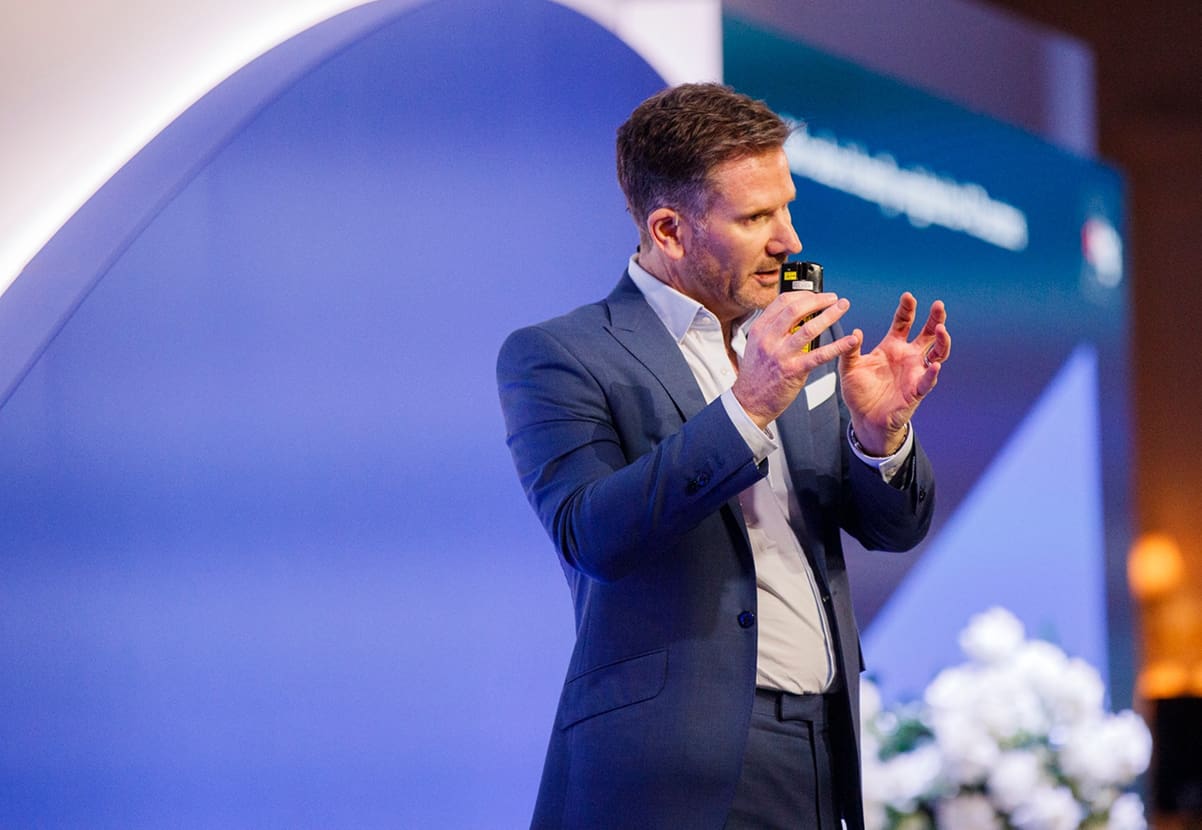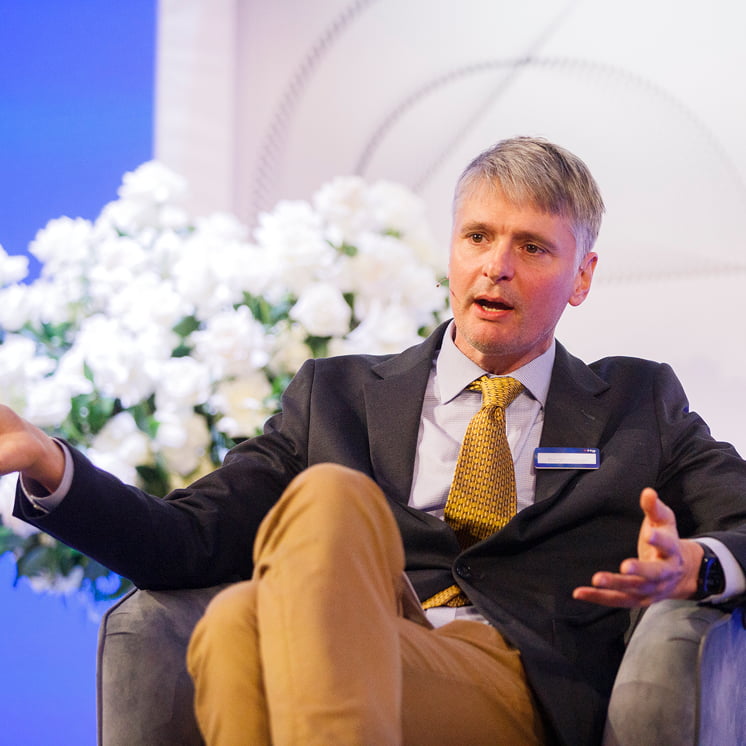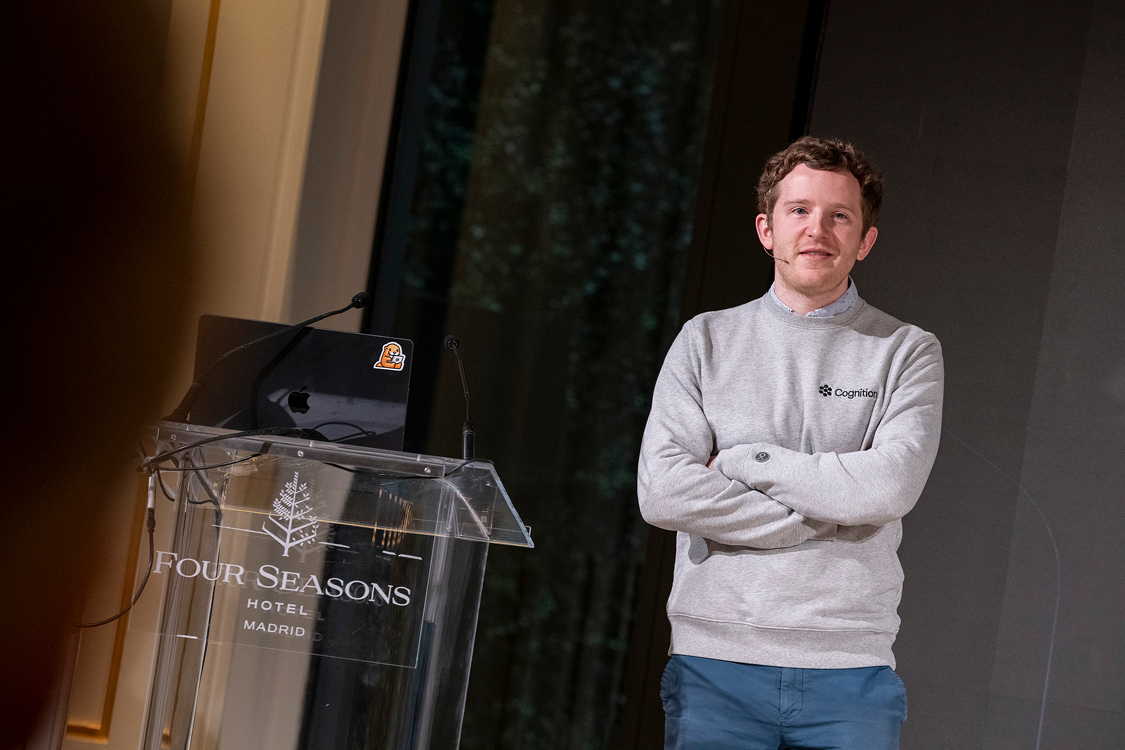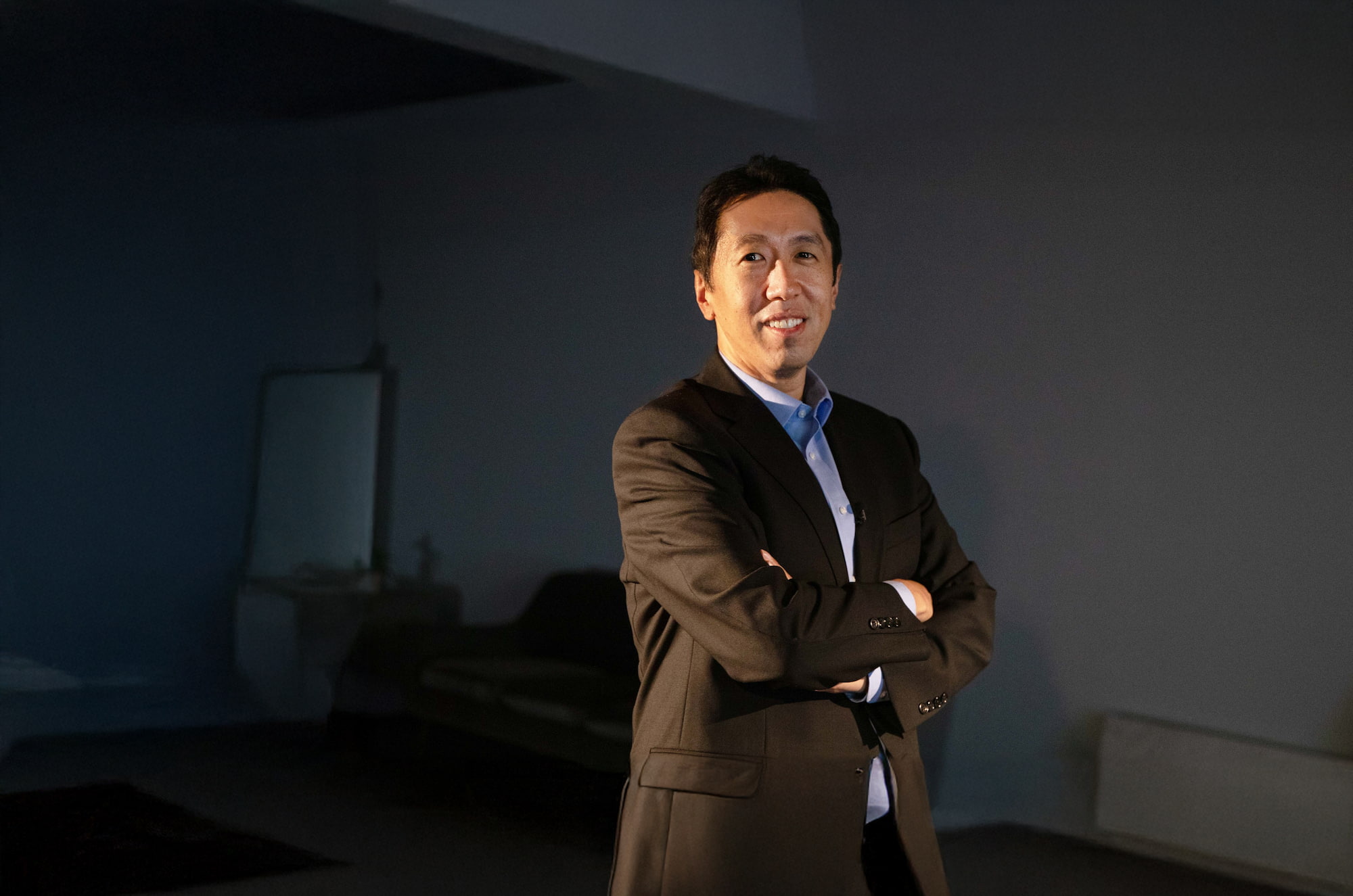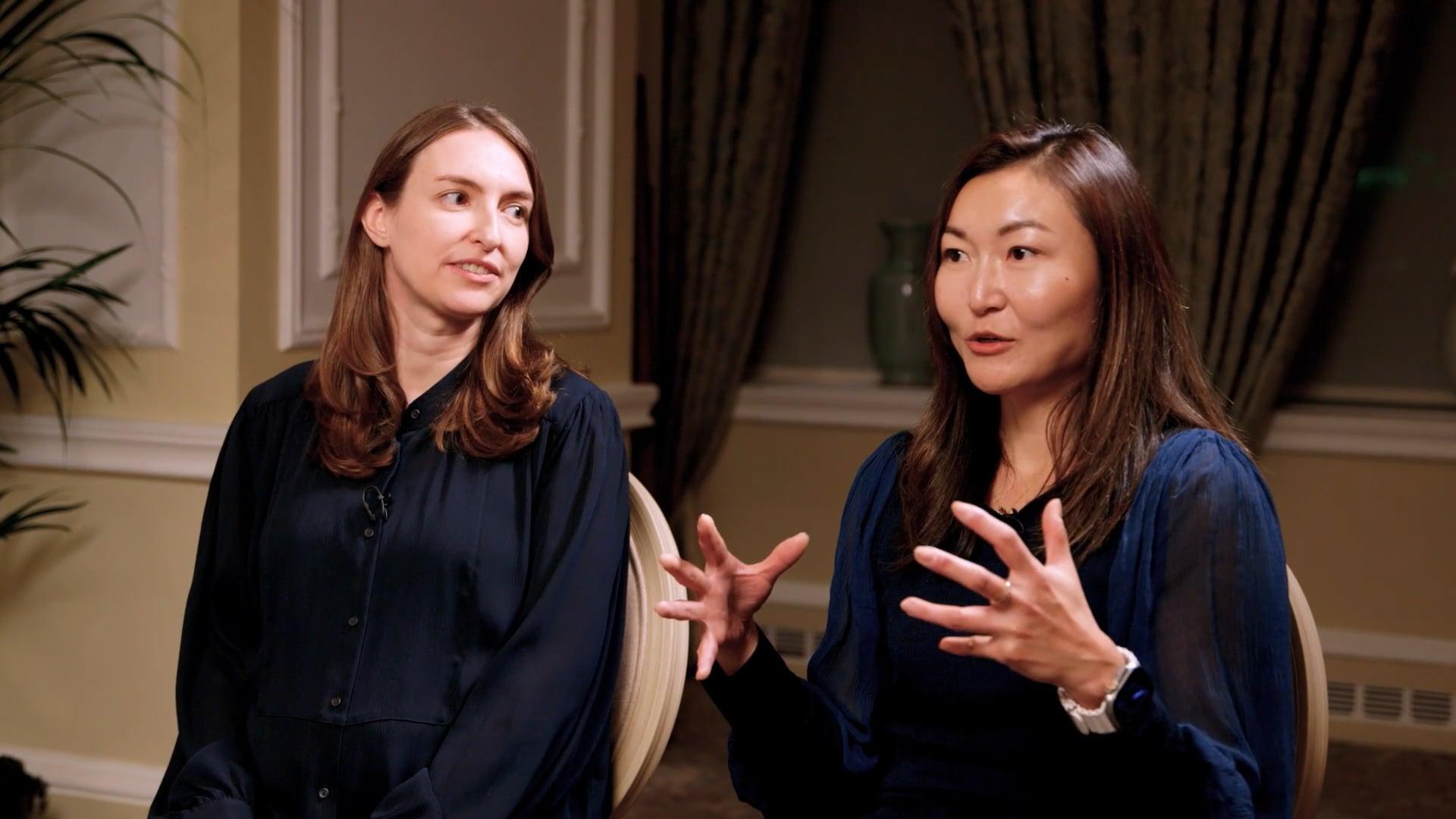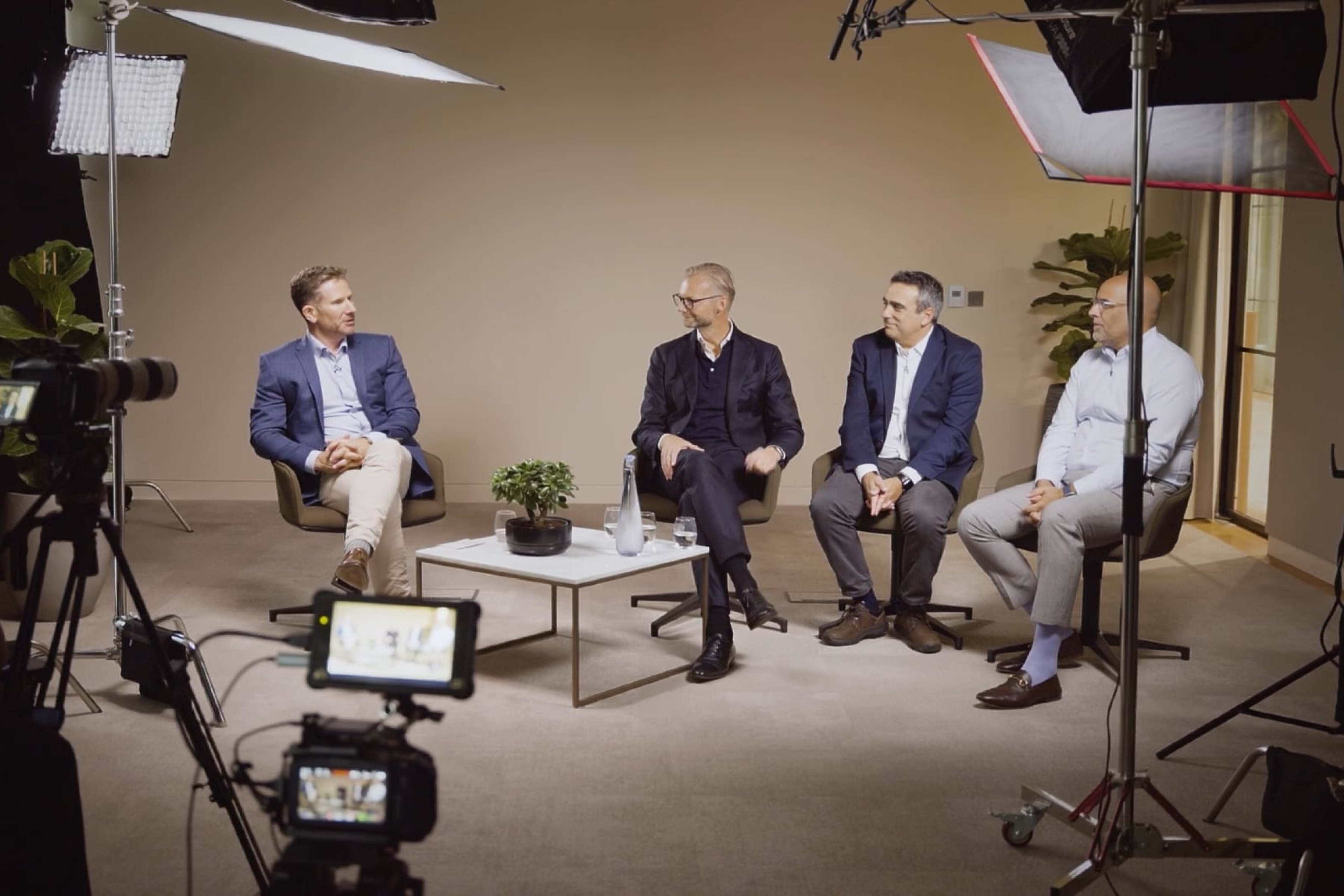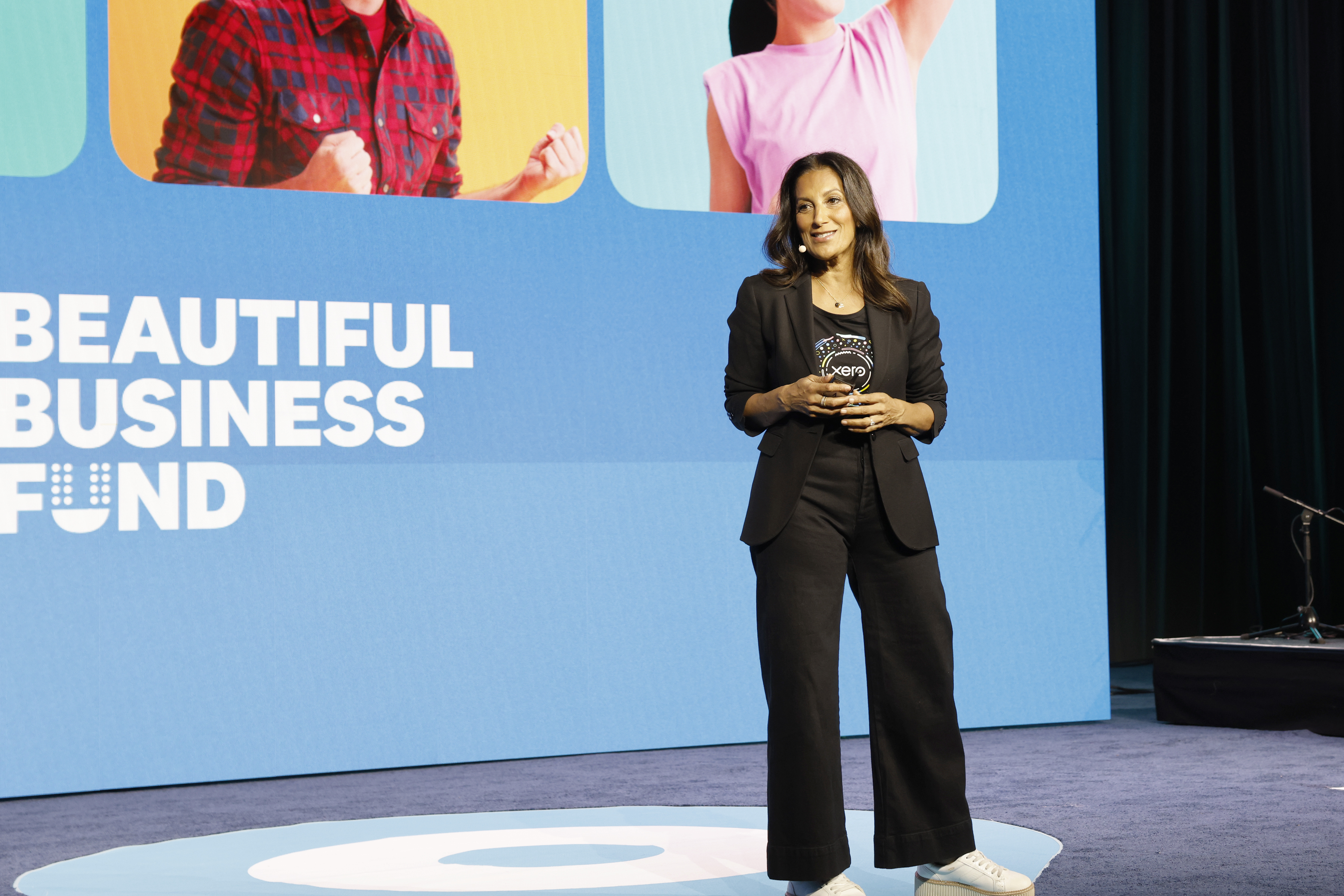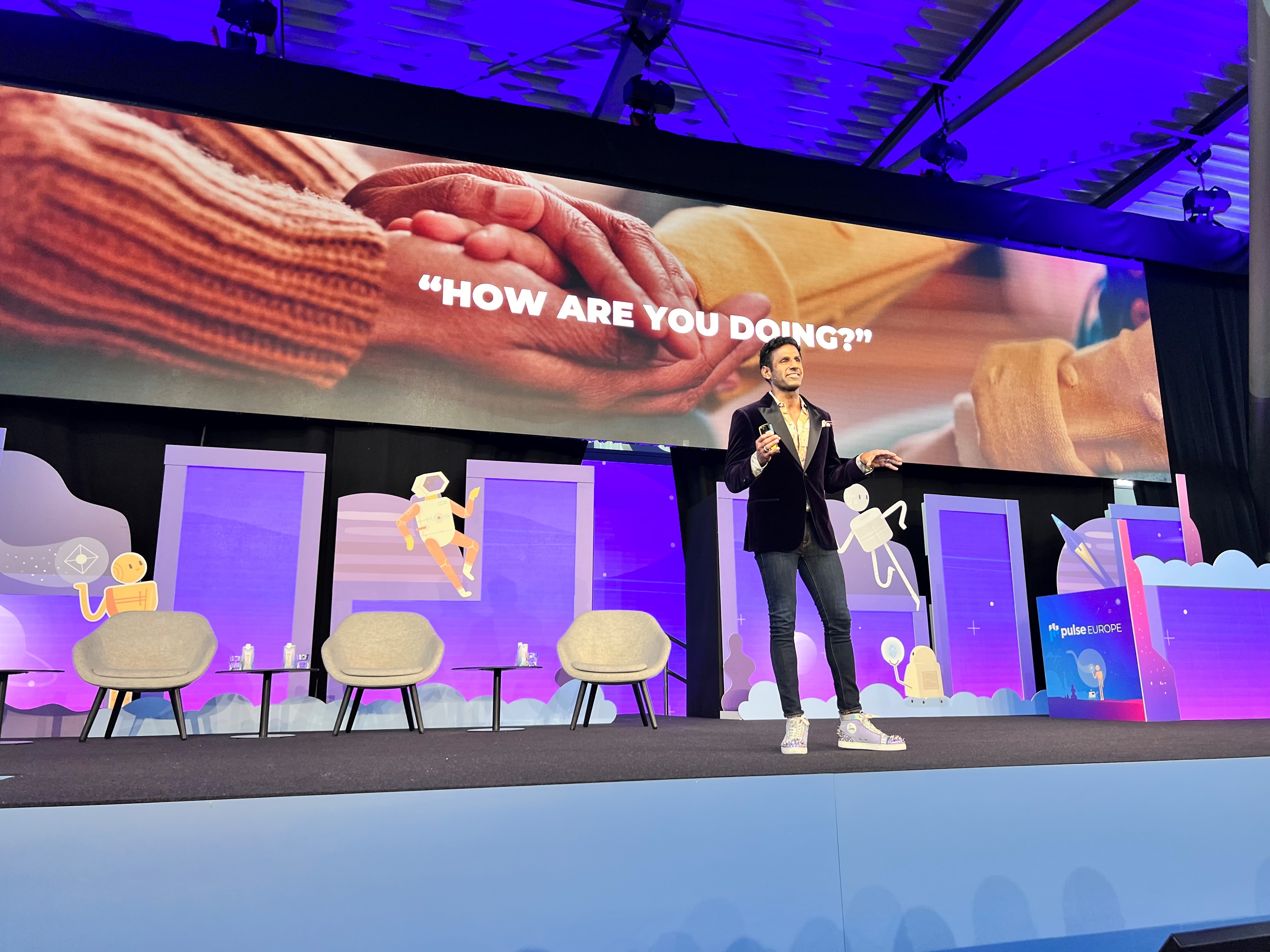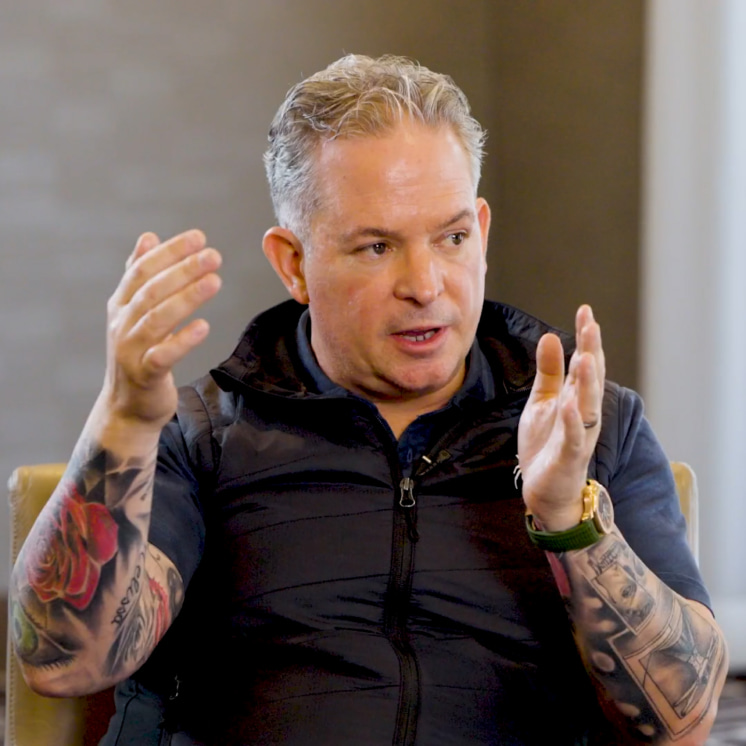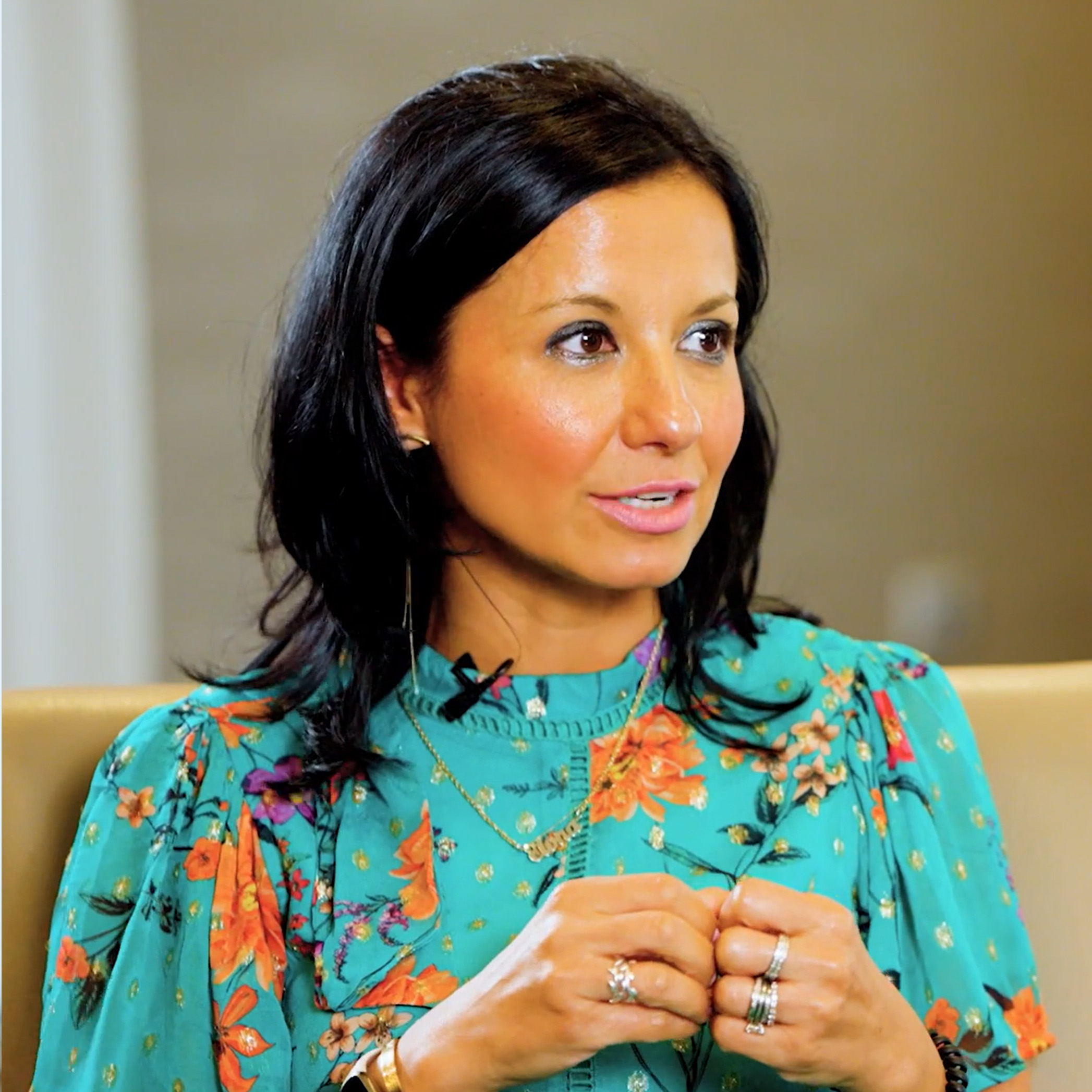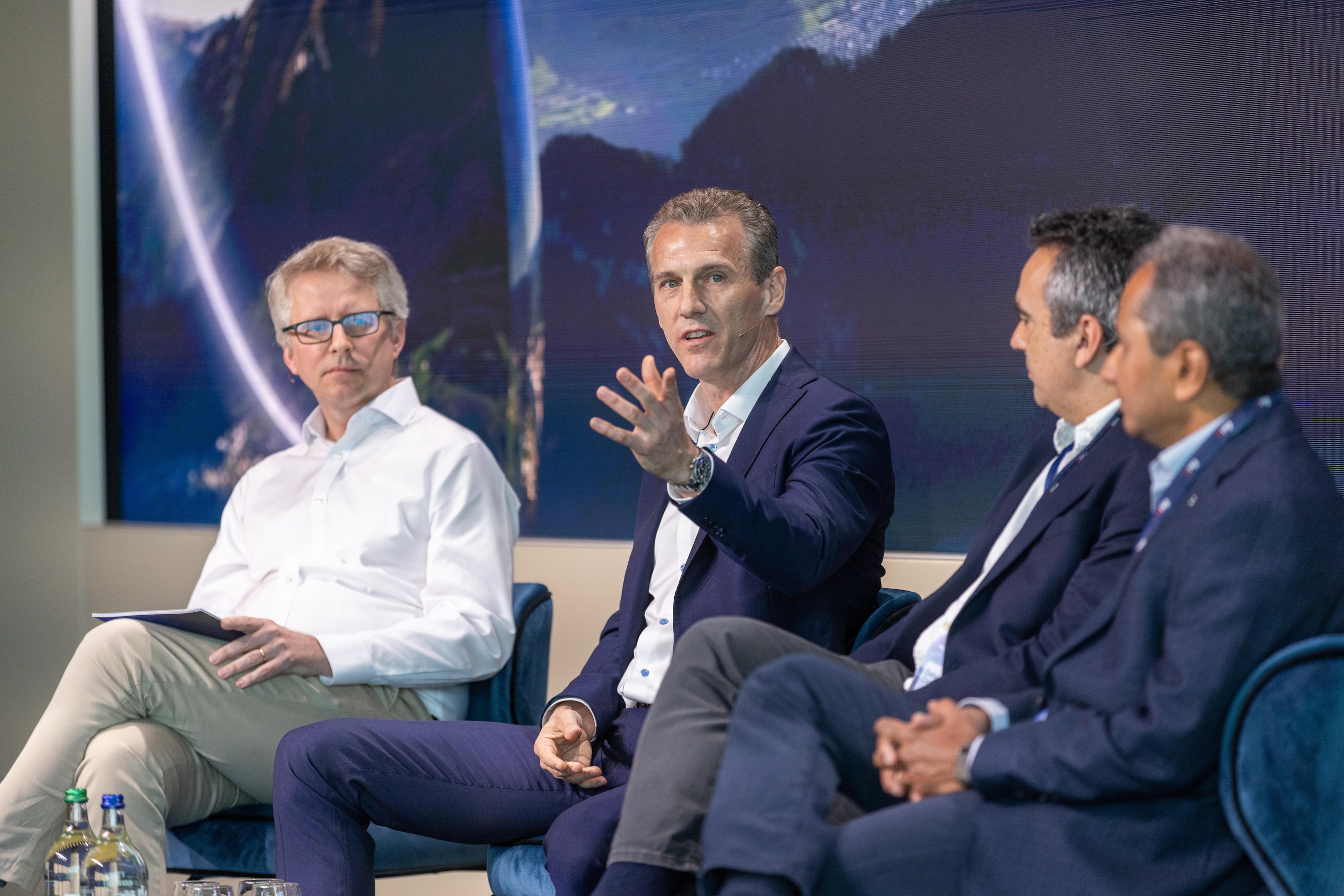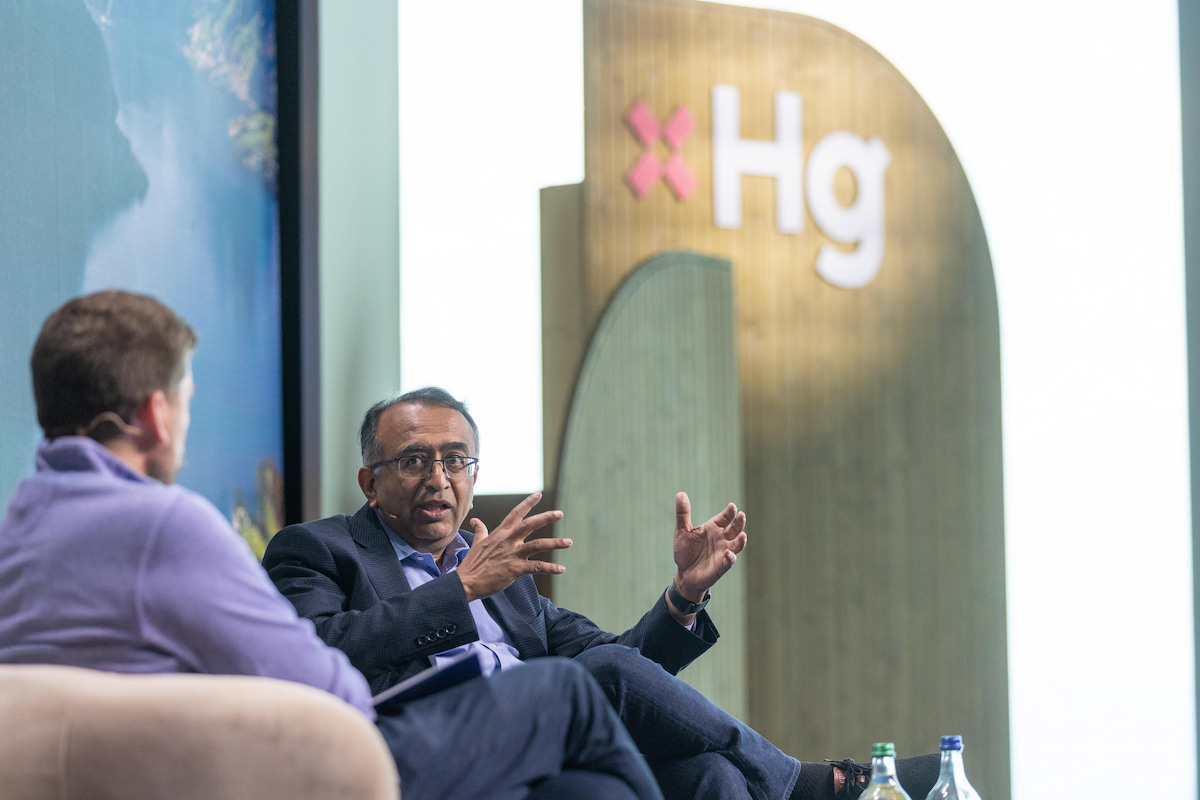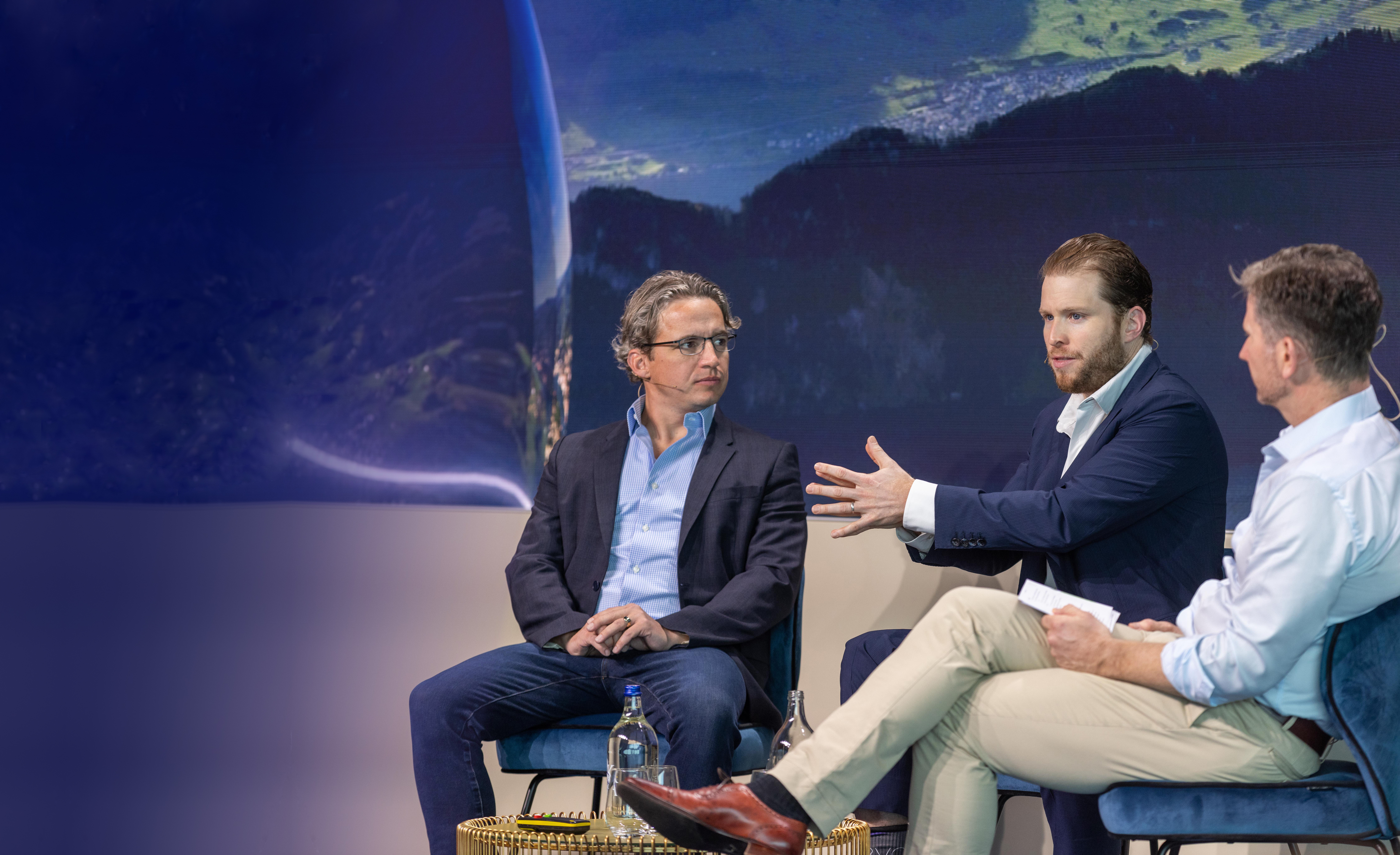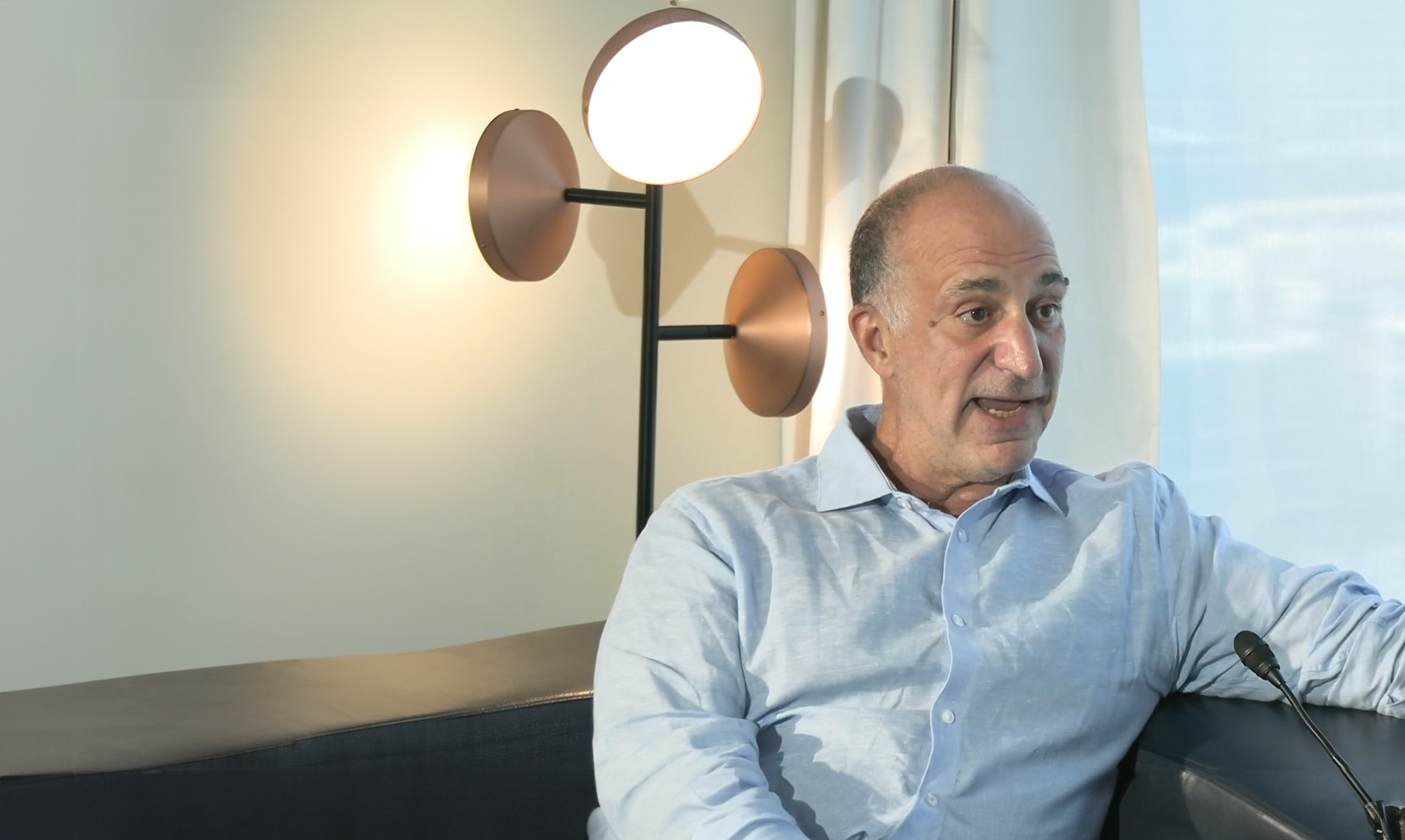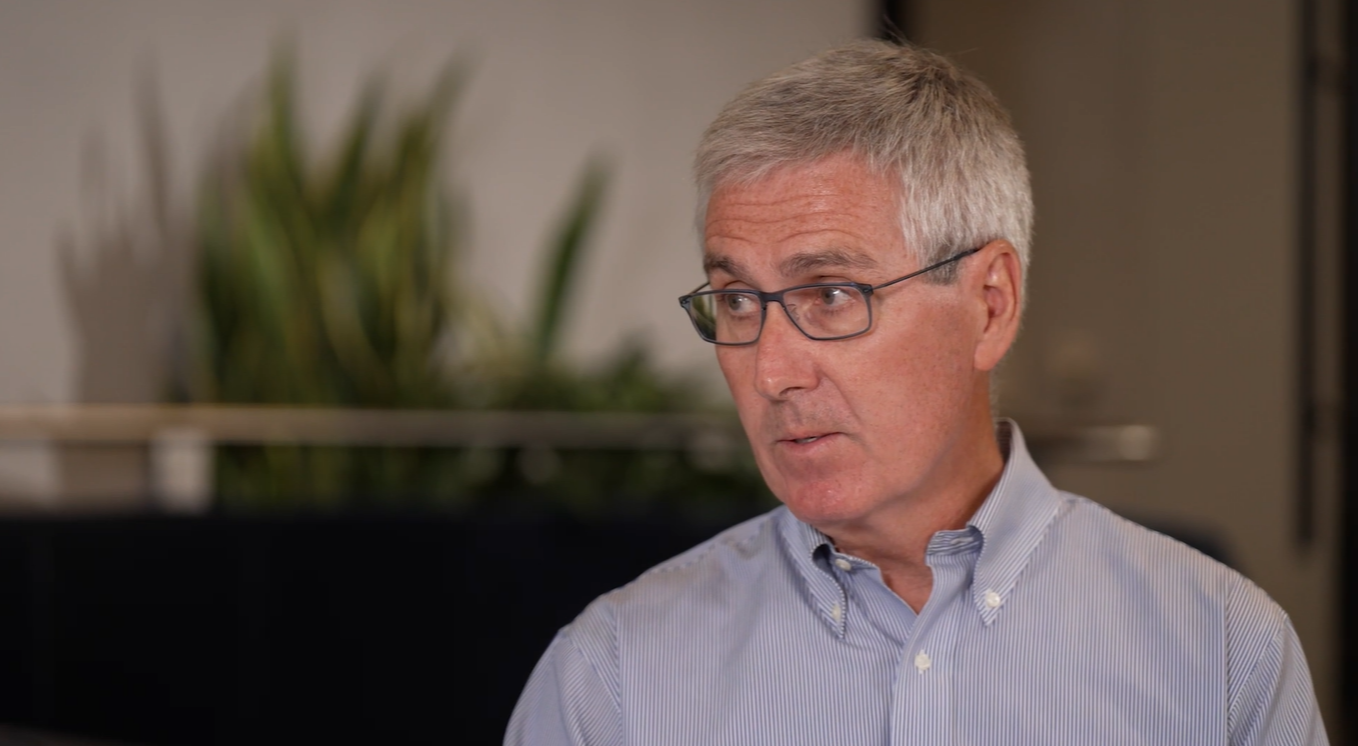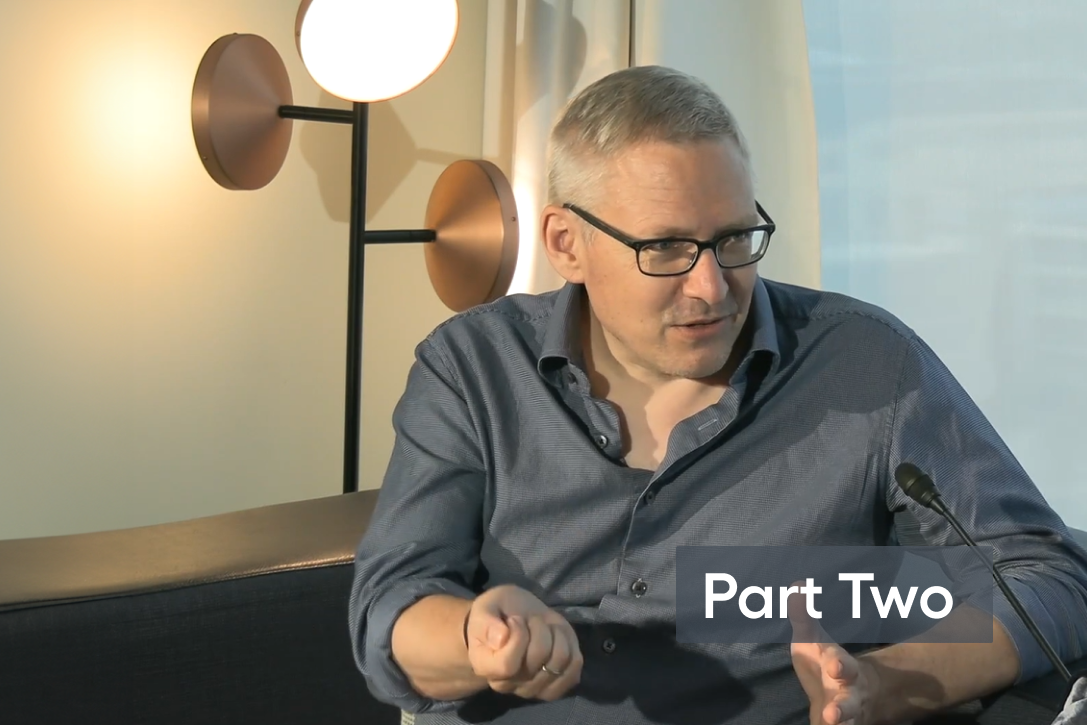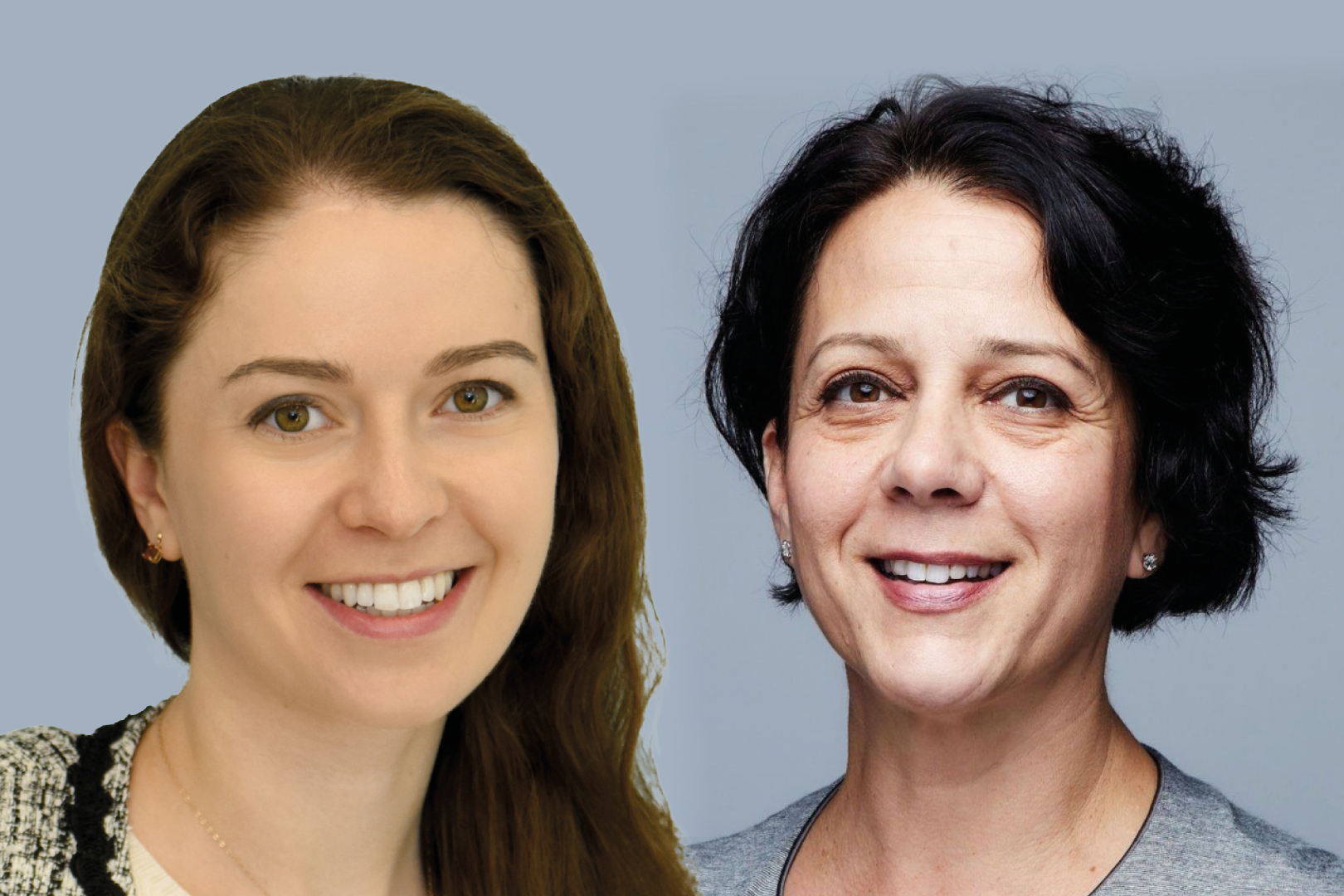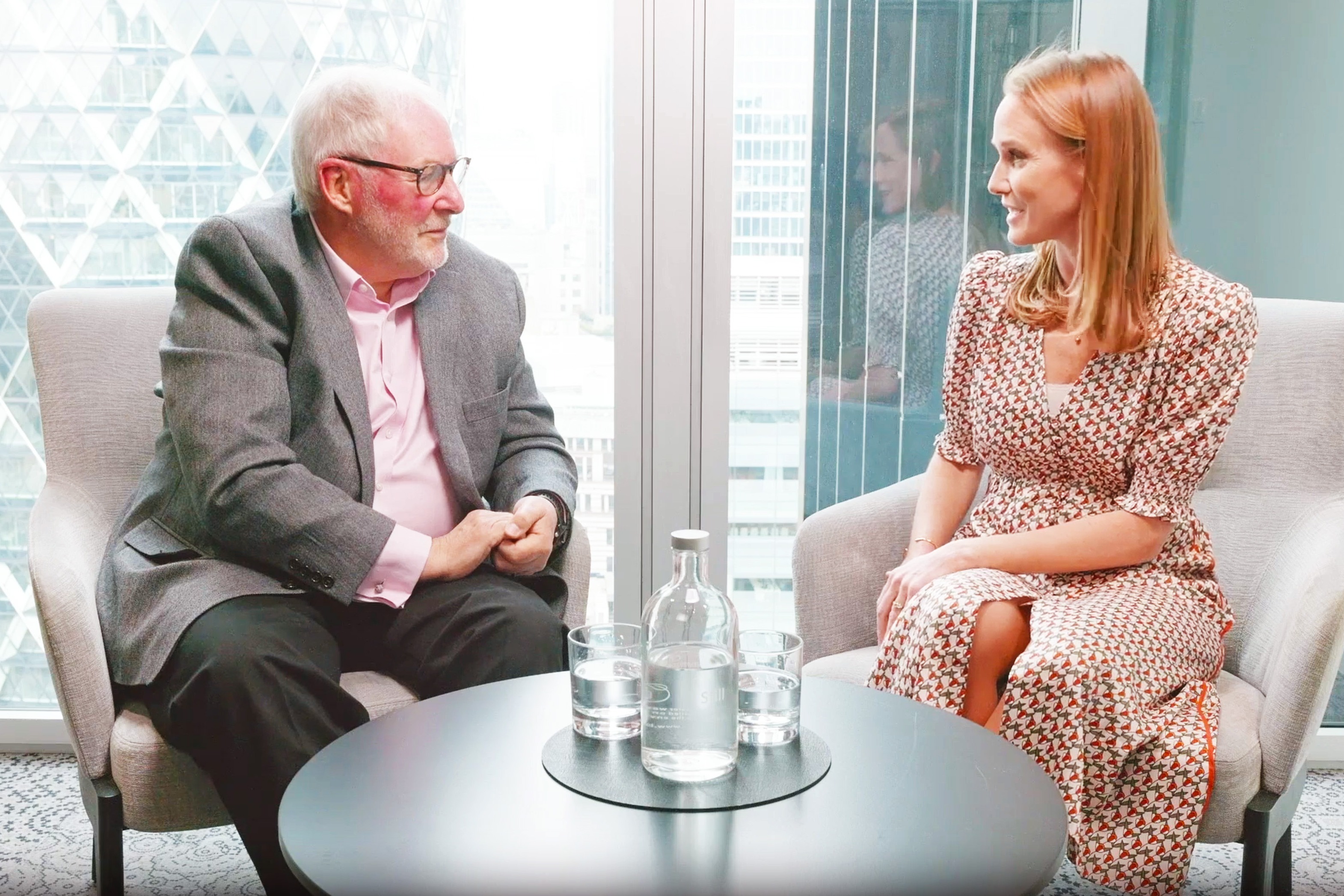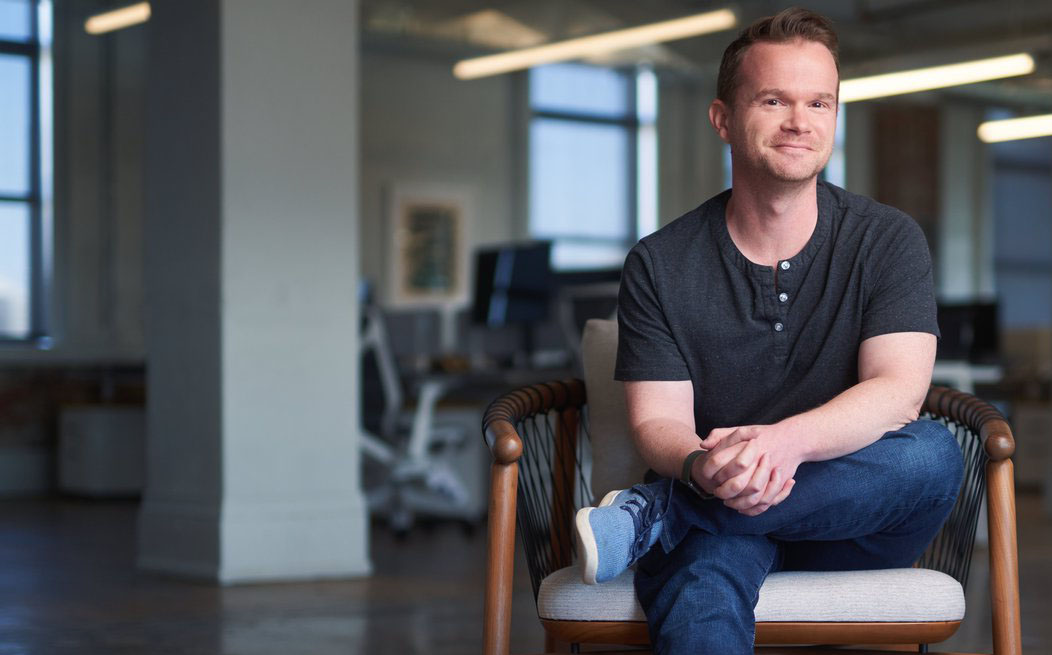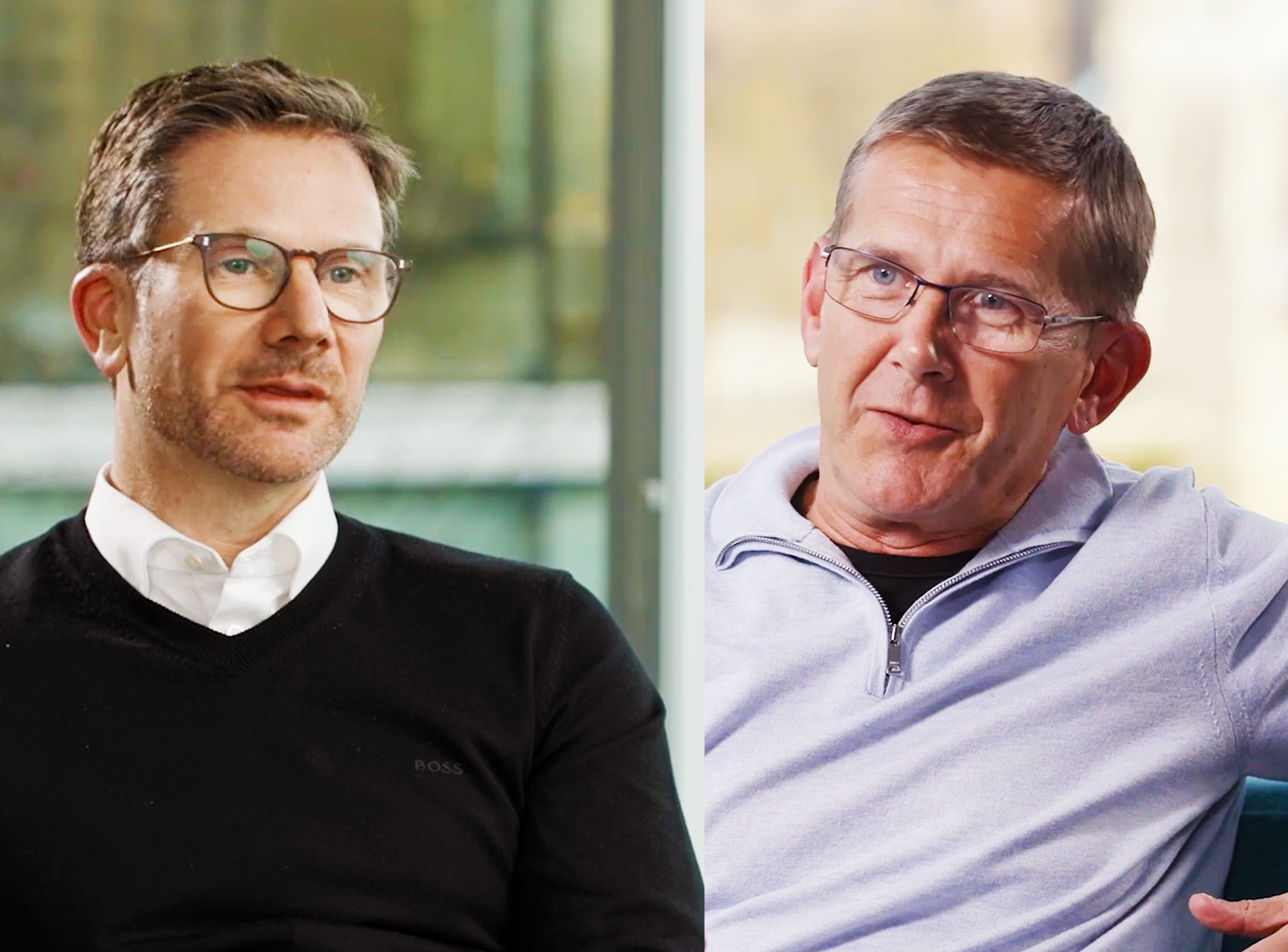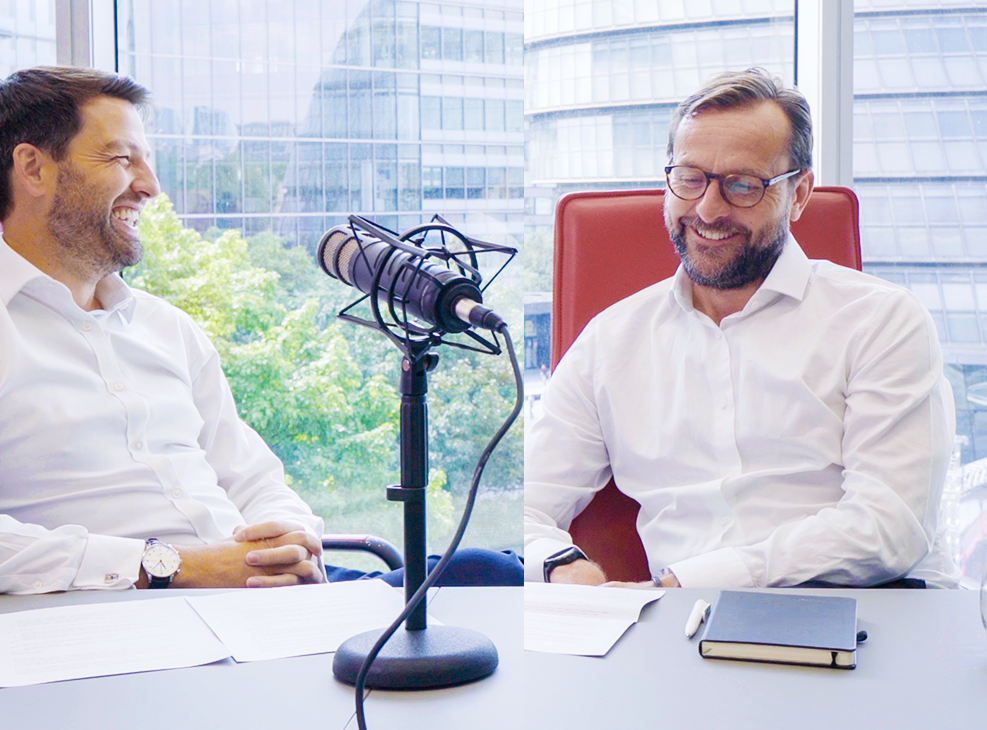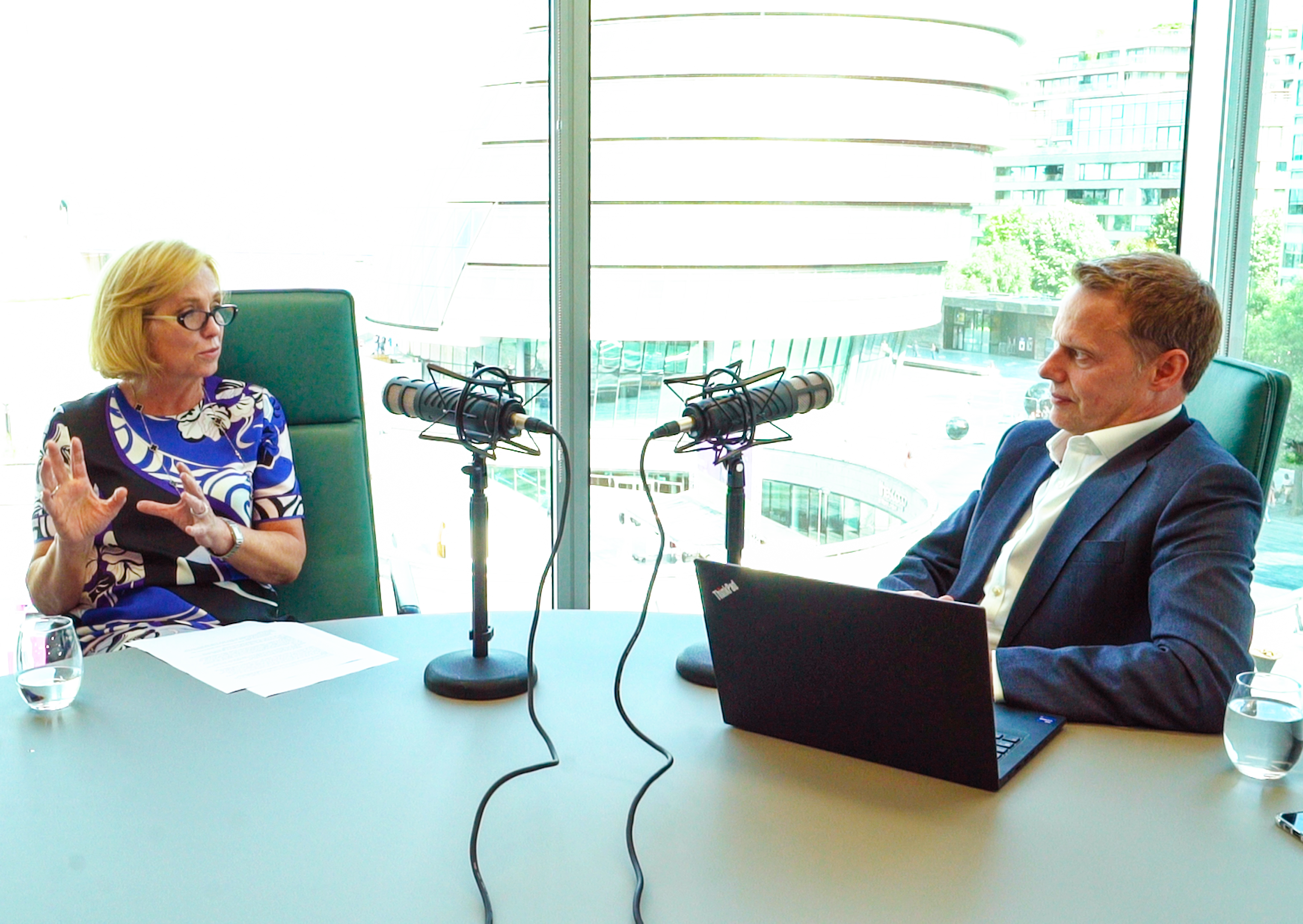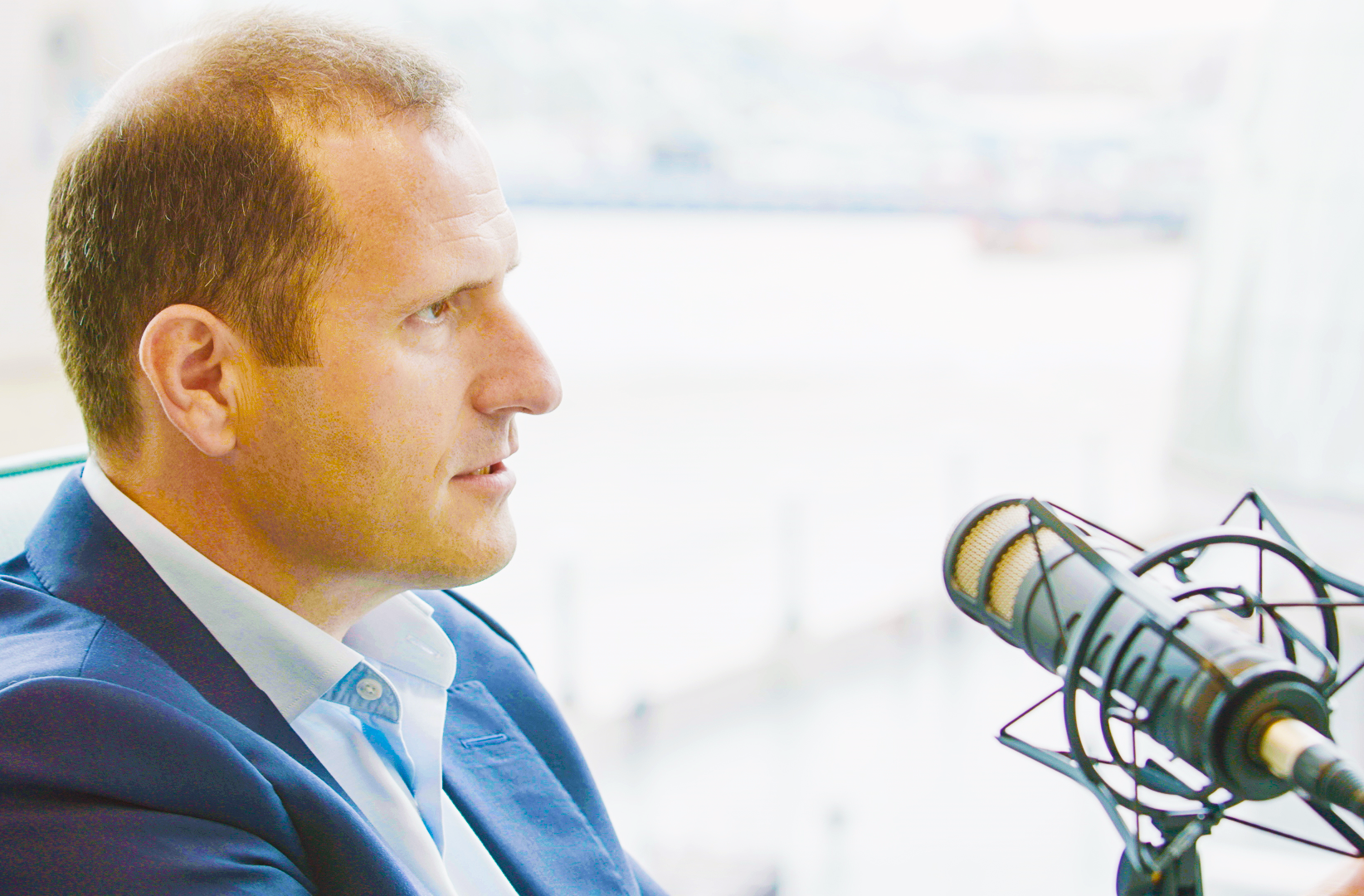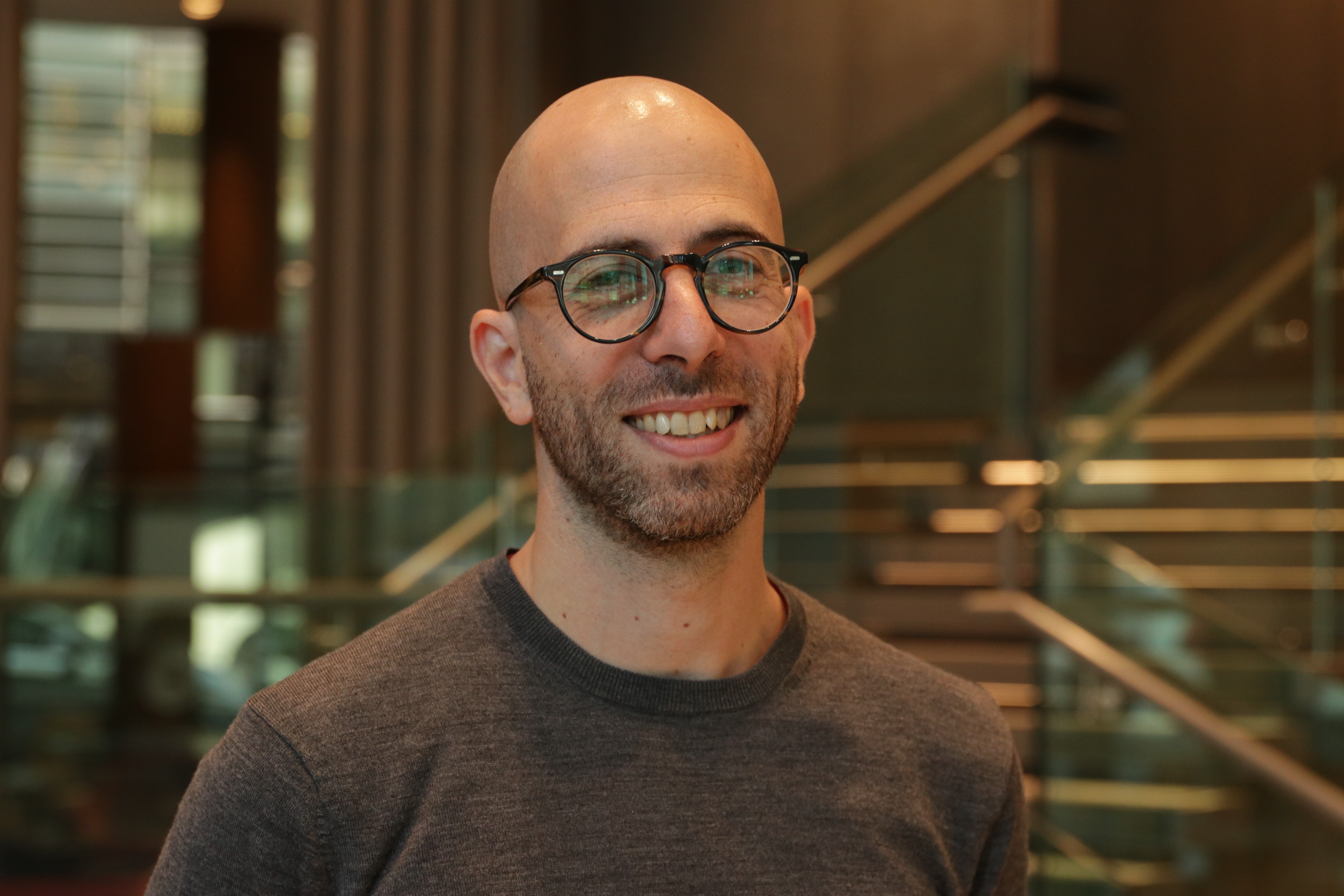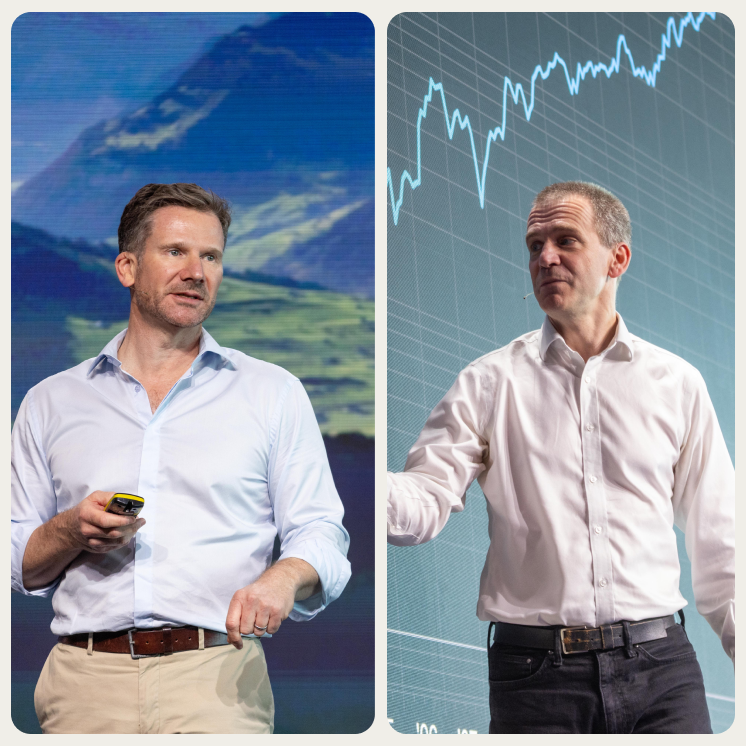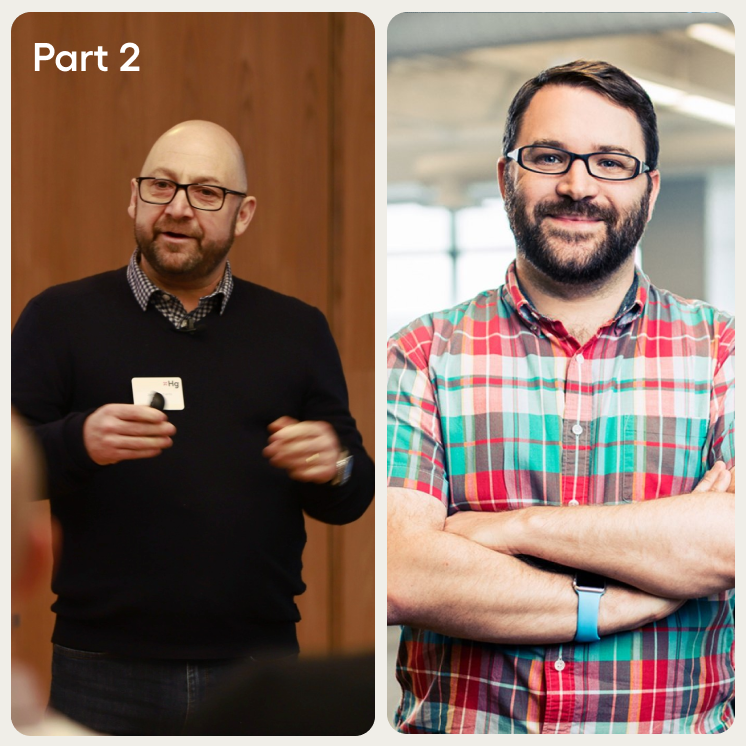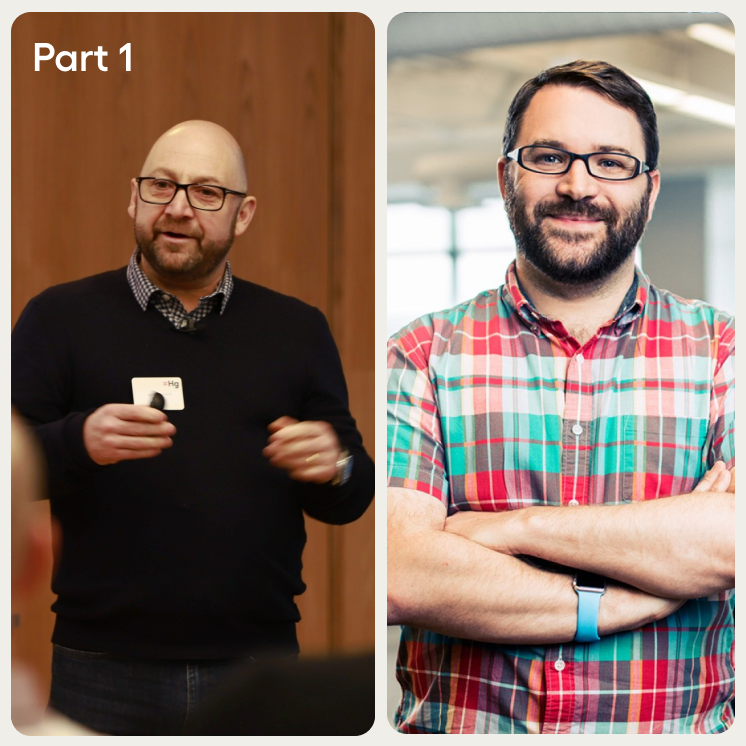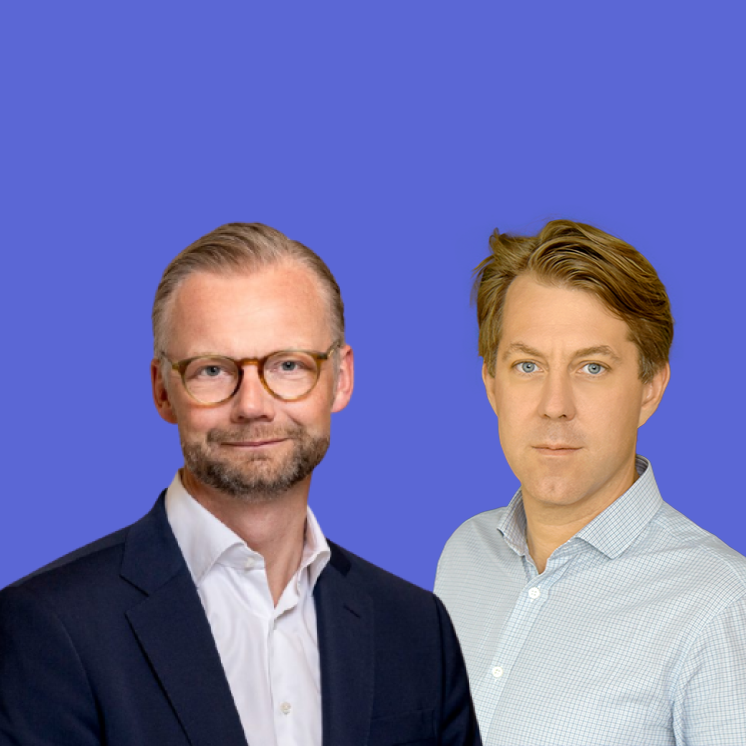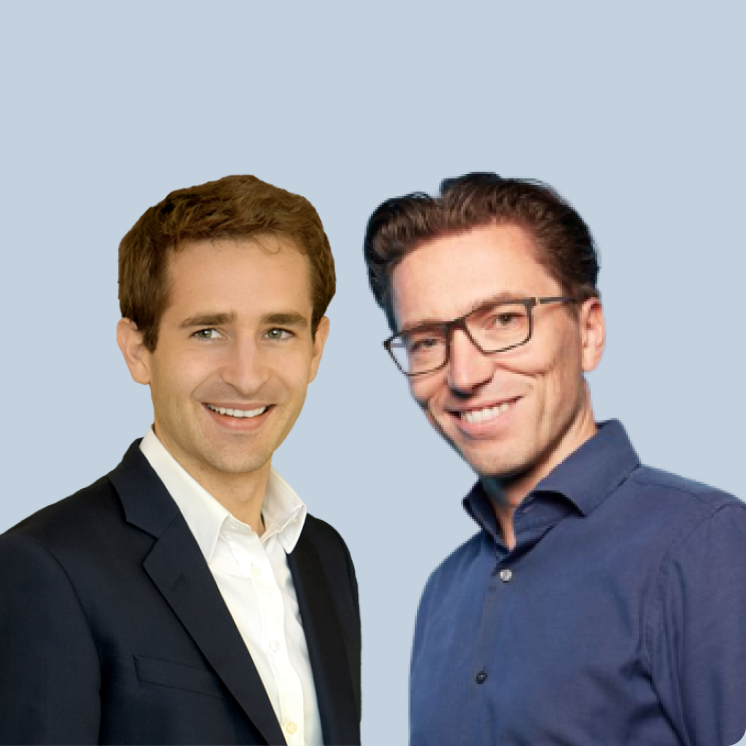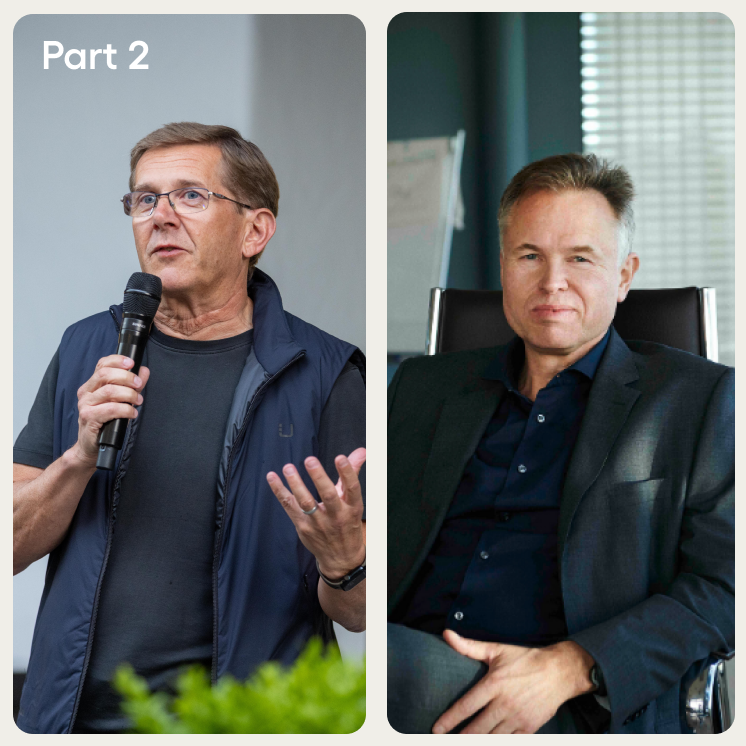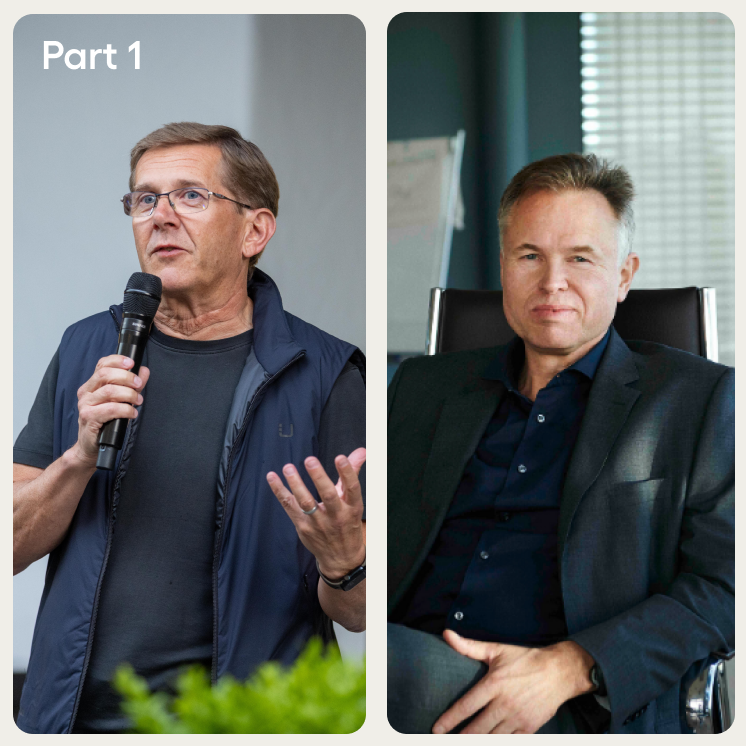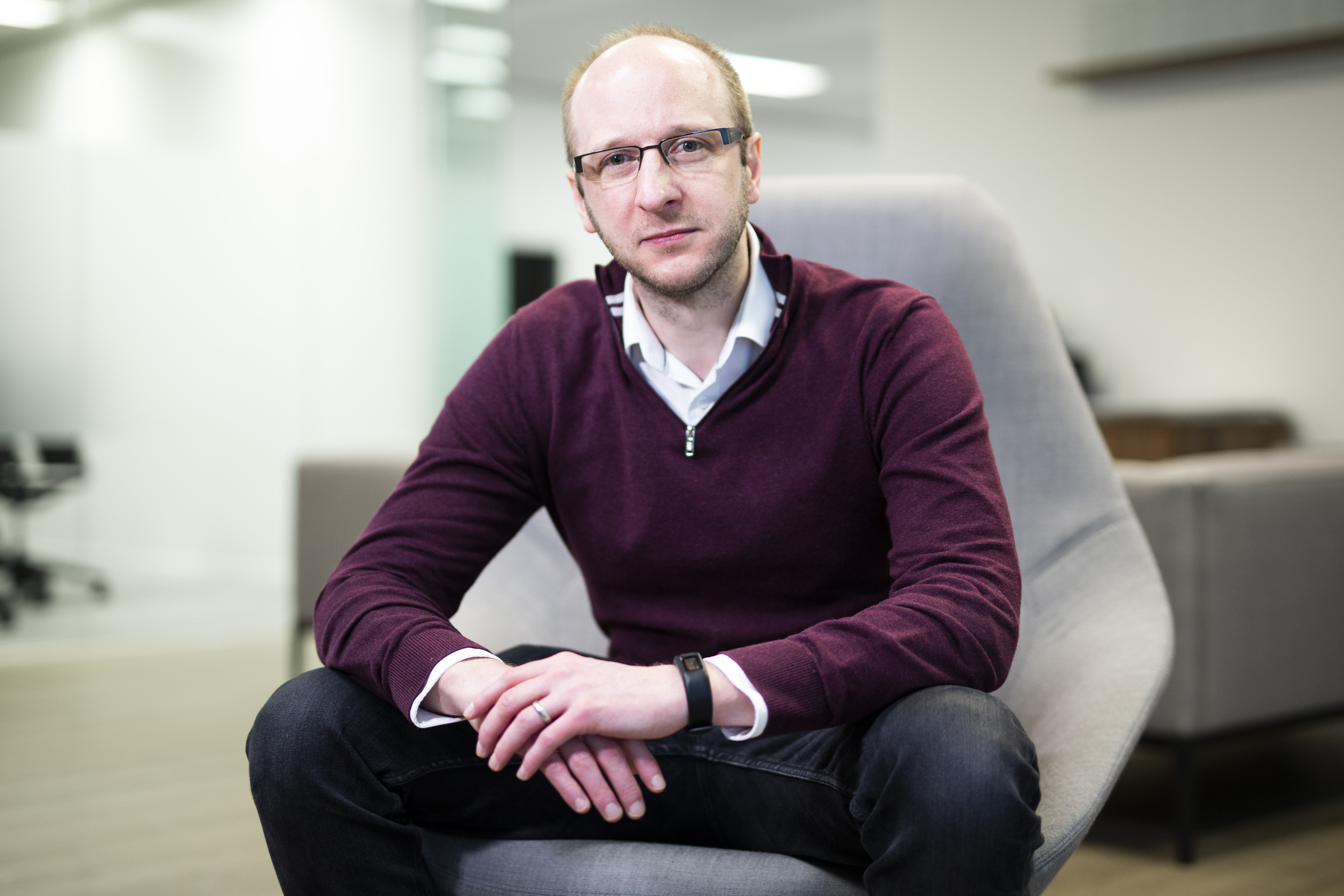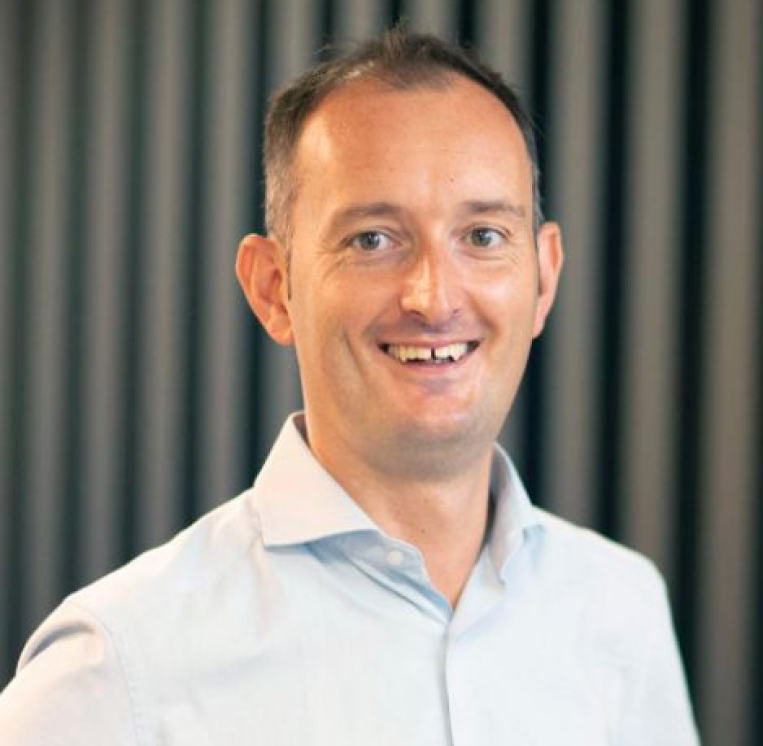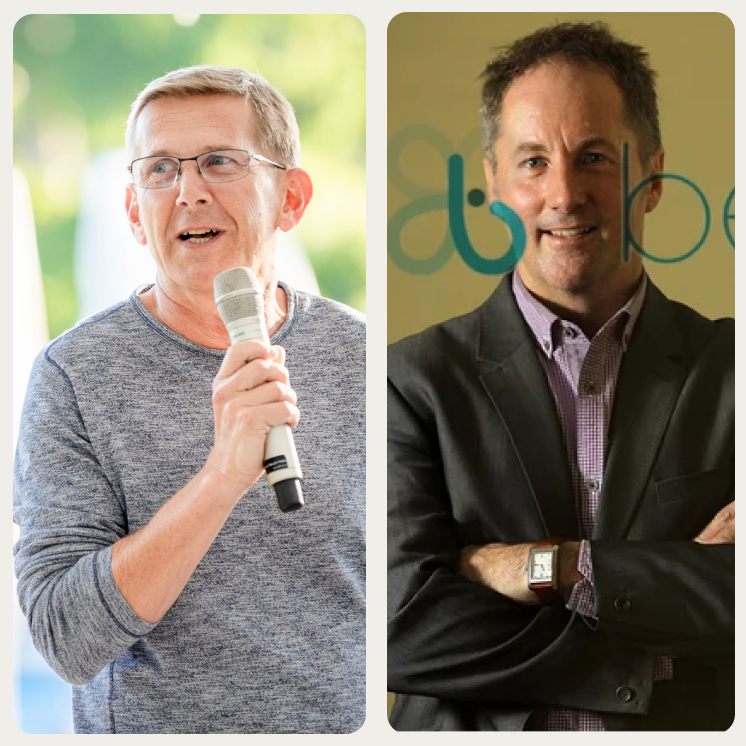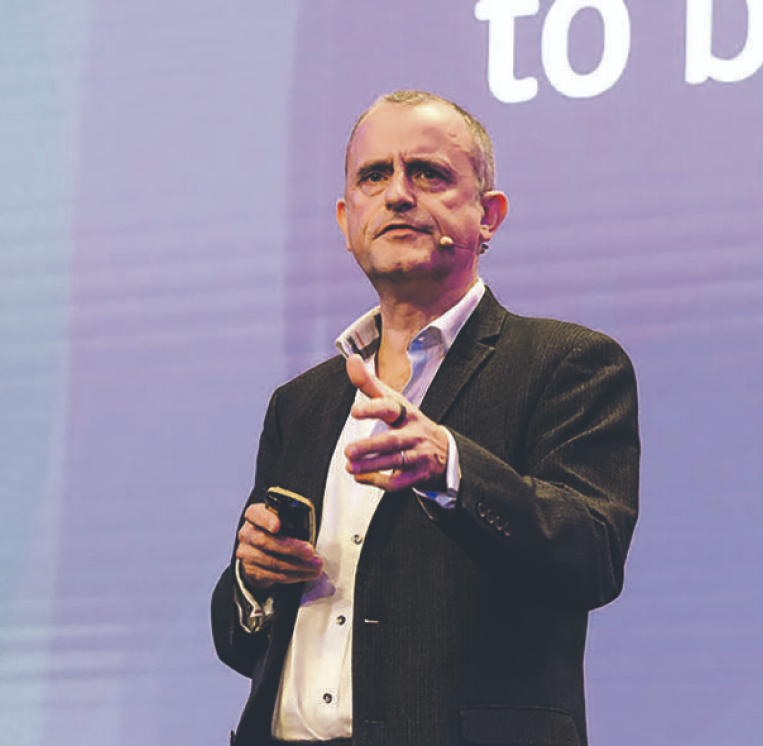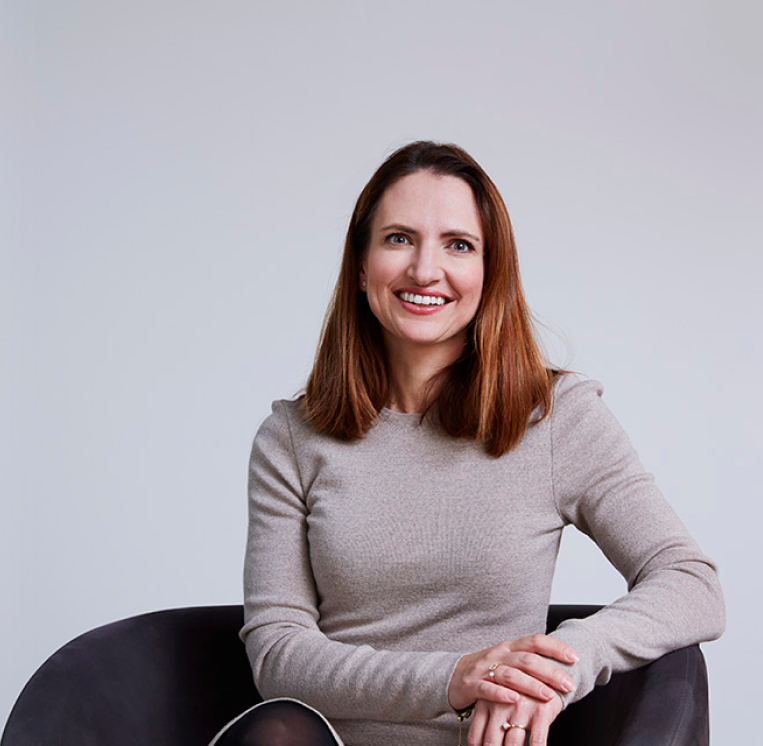Orbit Podcast
Orbit 49
AI, Control Points, and the Next Wave of Vertical SaaS with Tidemark Capital founder, Dave Yuan
In this compelling conversation, Tidemark Capital founder Dave Yuan shares his journey from Bain consultant to building one of the most thoughtful voices in vertical SaaS investing. Yuan reveals his "control point" philosophy—identifying the mission-critical systems that small businesses would turn off last before going bankrupt—and explains how this approach has guided Tidemark's investments in category leaders like ServiceTitan, Toast, and OneStream. His insights into workflow gravity, data gravity, and account gravity provide a masterclass in understanding what creates defensible market positions in software.
The discussion takes a provocative turn as Yuan explores AI's dual nature as both opportunity and existential threat for established software companies. He introduces the concept of "integrate surround"—how AI point solutions can gradually subsume control points by becoming the system of action rather than just record—and shares his framework for "fast waters" versus "slow waters" in AI adoption. With characteristic humility and intellectual curiosity, Yuan offers practical advice for navigating today's volatile market while building the Vertical SaaS Knowledge Project community that has become an industry touchstone for founders and investors alike.
In David's latest blog post, he discusses how voice AI will blur the lines between consumer and vertical SaaS faster than expected. Read here: "Voice AI in Vertical SaaS: Consumer Opportunity and Marketplace Threat"
Listen on:
Episode Transcript
Dave Yuan
Particularly I think about the buyout investors I work with, man, the progressive ones that do value the product, that do think about the secular tailwinds that do think about how you balance growth with margin, they're going to clean up.
Alan Cline
Welcome to Orbit, the Hg podcast series where we talk to successful leaders of technology businesses and hear how they've built some of the most successful software companies across the world. I'm Alan Cline, a partner at Hg and head of our North American team. I'm delighted today to be joined by Dave Yuan, founder of Tidemark Capital, a growth-oriented investment firm and a community supporter of founders with compelling visions for transformative software, particularly where human workflows are being reimagined by technology. He's definitely a kindred spirit of us here at Hg and very relevant given the rapidly changing software landscape we're all involved in today.
Dave's unique perspective, both on his combined expertise in different stages of software investment landscape and frankly, his deep curiosity about business has shaped Tidemark's approach. He's collaborative and long-term rather than being purely financial. He's helped company scale from growth stage to market leadership. It's an approach that's proven successful investing in a number of great businesses like ServiceTitan, OneStream, Toast, carbon, and Clio among many others. Dave and I have known each other for over a decade and he represents one of my industry colleagues whose insights and perspectives I deeply value. With that, Dave, thank you for being here.
Dave Yuan
Thanks, Alan. Awesome to be with you.
Alan Cline
As we get started, I'd love a little bit of your kind of personal background to date and maybe even how you started founding Tidemark.
Dave Yuan
Let's see, I got started in technology as a consultant. I joined Bain & Company out of undergrad and we did this 12-month turnaround case of a company called Sybase. Sybase had lost the battle to Oracle. Alan, you remember these guys.
Alan Cline
Heard there was a race for two, the top two.
Dave Yuan
Yeah, exactly. But it was a great primer because we went anything from the operating system all the way up to applications, and so that was my first exposure to software and I got hooked. I joined a startup and then I started my investing career actually at a bio firm. I got hired in 1999, but then joined in 2000 right in time to catch a bunch of falling knives. So we did three years of workouts and I got to see what happens when the times get tough and actually how investors and operators handle adversity. So it is actually a great primer.
I think the probably most formative experience from an investment standpoint was with a fund called TCV. I worked under a guy named Jay Hoag who was the founder, and Jay just had this really strong conviction of paying up for category leaders. Category leaders surprise you to the upside in terms of how fast they grow, how much they exit for, and so this really focus on winning a space and the thematic growth was a great compliment to the bio experience. And so that was my investment history in a nutshell. I was at TCV, was a GP there for about 15 years, and then started Tidemark about four years ago.
Alan Cline
Maybe a little bit of history in the name Tidemark. Any significance there?
Dave Yuan
Yeah, well I think as these things go, you start out with a pretty wide range and you get really practical. So Tidemark is easy to spell, it's easy to pronounce, but the thing I like about Tidemark is tidemark the actual term means either the high or low point where the ocean meets the sand and we chose the high point, right? So the high point in terms of excellence, in terms of category leadership.
But then this intersection concept is really cool in the sense that where we invest primarily in Vertical SaaS, it's an intersection of SMB software, enterprise software concepts, FinTech, consumer, and so that's a really a big part of the ethos/. And then how we built the firm, we're bringing in operators, we're bringing in later stage investors like yourself, early stage investors to really be an intersection and confluence of how we think about markets, companies, investments. And prior to switching over to the business side, I went to school as potentially a marine biologist. And the tidemark is in actually the intertidal zone, which is the most rich and prolific part of the ocean, so all that stuff came together and it felt like a good name. We could get the URL.
Alan Cline
Well, Dave, there's a ton of symbolism and meaning in there for you that dates way back. Maybe even before we dive into some of the business nuts and bolts, I'd love to hear a little bit about your childhood, especially your parents and how has that shaped your worldview and career path?
Dave Yuan
Yeah, well, I was super lucky, so maybe a little bit of background. I was born to two immigrants, both came over for grad school and were paying for family back home. One was an engineer, one was a scientist. My dad worked on a bunch of rocket systems for Raytheon and then moved over to work for the Department of Transportation. My mom did early research for the Harvard School of Public Health, looked into some predecessors of AIDS and did some incredible research. But man, I saw them work really hard. They saved up, they paid for my sister and my college education and they provide an incredible background for everything that's occurred today.
I think the other aspect of my background is really interesting is I was different. I grew up in the '70s and '80s and '90s and I didn't look a whole lot like everybody else. And I think part of that was great in the sense that I'd argue it'd a little bit of a chip on my shoulder to prove myself out on the rugby field, the classroom and all sorts of different environments to prove my worth. But it just gave me that initial motivation and to really push myself hard and I'm just really grateful for that background and everything my parents did for me.
Alan Cline
I think that's fantastic. I come from an engineering and teacher parental set, and a lot of those kind of core values and elements ring true for me as well, so I totally get it.
Let's shift gears a little bit. I think one of the things that you've done extraordinarily well, and it's been pretty different at Tidemark has you've taken a view of your investor, but you're also kind of a spiritual leader of the community and you've started the Vertical SaaS Knowledge project. What gave you the idea to start that as kind of a theme for your firm?
Dave Yuan
Well, I think early days in our firm's life, I was fundraising and I was spending a lot of time pitching investors, and you're using one side of your brain, right? You're describing the opportunity and trying to get people's confidence and those types of things. I really wanted to use the other side of my brain, which is the thinking, the conceptual, the analytical part, and I believe that writing is learning. So I've been fortunate to work with... Well across our team we've worked with I believe over 10 vertical and SMB SaaS companies, have scaled over 100 in ARR, I want to say seven over 500, three approaching billion, one over a billion. And so we have a bunch of these learnings and pattern recognition about what makes a great Vertical SaaS company, and so pretty early days we decided to codify that and share that with the world.
I think this also aligns to what I believe investors need to do more and more in the marketplace, which is to show not tell of value. Growth equity firms are bereft of young people calling on CEOs and saying, "We love your business, we can add value. We're good guys." And I was one of those guys 10, 15 years ago, and so rather than hiring a horde of people to do that, we felt like we wanted to get our ideas out there so that people could actually understand that we really did value their business, we really did value the company they were trying to build, that we could show value.
So this framework, it's taken its own life. We've been fortunate to get a number of operators and CEOs actually contribute to the framework, write chapters, weigh in on different concepts. We've created ecosystem effort. I'm happy to talk through that if that's of interest. And I'm grateful that you say that we're a steward of the community. That's what we aspire to be. I don't think we've earned that yet, but we continue to try and contribute. So the general thought is that over time, if we're viewed as a support of the industry, some portion of the industry every year might decide to raise money and that's a great basis to build a relationship and to evaluate investment.
Alan Cline
That makes a ton of sense. And you touched on it briefly just a second ago. I'd love to hear just a little bit more of the ecosystem. As you've seen that and put that together, what does that entail?
Dave Yuan
Well, it's occurred pretty organically. So first we published all these frameworks and we're still writing today, we're about to launch two frameworks in AI in the next couple of weeks, which I'm really excited about. What we found is that most founders and CEOs actually needed more than just the written word, and so we've launched something we call Collective. So we have something like 45 executives are running some of the biggest software and technology companies on the planet, they're our Tidemark fellows and many of these fellows will actually teach a class once every other month or so where they'll walk through a concept that's oftentimes part of our framework.
We'll invite 20, 30 non-competitive CEOs of Vertical SaaS companies. They can learn from the speaker and learn from each other. That's gone incredibly well. So we've gone from digital to an in-person session. So we host something we call Collective Live, which is our version of SaaStr. Last year was about 100, actually 130 Vertical SaaS CEOs that flew in from all over around the world. This year will be over 200. And so that itself has become more than Tidemark. It's become its own industry community.
Now you have the conceptual pieces of the frameworks, you have the earned knowledge through the community. We also wanted to add data, and so we launched a benchmarking survey last year, which a big part of our missive is you start and win the control point, then you expand your offerings, you cross all a number of different attached products and then you extend through the value chain. So we wanted to actually go from concept to data. So we did an industry-wide survey, I think we had over 200 companies participate last year, that actually calibrated the starting point of companies, what product they started with and their attach rates both in terms of the ability to cross-sell and the ability to monetize. And we did that with 40 other GPs. We did it with Stripe and Gusto, a number of big industry players. Our belief is that's the only data set out there available to founders and CEOs to think through product strategy.
So those are the types of things that we're building and we're adding to it every day. And the nice part is it's one of these things that compound, you start out with the written word, which is pretty hard to put together. It's a lot of time. It was 6:00 AM to 10:00 AM on Saturdays for me initially. I get to do it during the weekdays now because we have a few more people. And then you got the community and you have data and you start to build this vibrant community where we have other GPs participating. Hg's been a great partner. One of your CEOs actually spoke at one of our events and we're excited to do more with you guys and really build this out.
Alan Cline
That's fantastic. Maybe we could touch on a couple of the foundational concepts you alluded to around control points, maybe in the concept of gravity we've spoken about before.
Dave Yuan
Yeah, absolutely. Vertical SaaS oftentimes sells to small businesses and we usually find within a small business a merchant, there's one system or two systems that are the most important systems. They're the control points. Usually there's one in the front office and one in the back office. If you're lucky, you start from mid office, you expand outside and you're the only control point. A control point is the most important system, very pragmatically, it's the last system that you might turn off before you go bankrupt. It has things like account gravity. The owner knows what the system is, the customers know what the system is, it has workflow gravity. Workflow is most important set of jobs that merchant has to do or it's the job set or the workflow that the most people at that merchant work with. That's workflow gravity. Data gravity is the most important data.
So if you have that control point, it not only affects your retention, which obviously is great financially as we all know, but it gives you the right to sell multiple products. Oftentimes a owner only wants one system or fewer systems, a single point of accountability. If you're the control point, you have a right to sell multiple price to be that operating system for the restaurant, for the trades person, for the lawyer, and that's a really powerful piece. We've done a longitude study on software public companies over the last 15 years and what we found is multi-product is probably the single biggest contributor to sustainable growth, to high margin, even high multiple on the market cap side. So it hits you three ways in terms of to the positive and generating return.
Alan Cline
That's incredible. I think that makes a ton of sense. You mentioned data and I think that's probably a good transition to talk about what is not a new topic, but one that is rapidly changing everything we touch, which is AI's impact on software and then also software investing. You've been vocal about AI's transformative potential. It sounds like you have a couple of thought pieces coming out. You want to give us a quick preview of some of your thinking there?
Dave Yuan
Yeah. This is something we've been looking at very closely over the last two years. It's super exciting, super dynamic. It is threatening to certain segments of software. so we've been looking at it closely. We've been talking to multiple founders, multiple technologists and multiple customers and really try to inform it, try to get out of the initial high level narratives that AI is going to eat software or destroy the world and get into the real threats and the real opportunities. I think the thing that we found is that in the Vertical SaaS control points that we invest in, AI is oftentimes more of an opportunity than a threat for a modern platform, for a progressive CEO if they actually take the technology, both the opportunity and the threat seriously.
Again, if you have workflow gravity, then you have right to cross-sell multiple products including AI. Embedding AI has become easier and easier given the hundreds of billions that OpenAI, Anthropic and other infrastructure providers have provided. So this isn't like you have to recreate your desktop experience into mobile experience with very few tools. Thinking back to the mobile transition 10 years ago or so, this is a much different situation where there are great AI services that are available by APII. So I think in general for a control point, so we see this across our portfolio, it's actually a pretty strong opportunity. I'm sure you guys are seeing that across the Hg portfolio.
There is a risk though, and this is why I think CEOs really need to be very vigilant here, and I think we and as board members together, you and I have to be real advocates for AI. There's a common pattern by which a point solution will compete with a control point and ultimately subsume a control. We call it integrate surround, where you have a great wedge, it's a great feature, it's a flashy thing that gets users excited. You get some engagement, you get scale in that engagement and all of a sudden you force the control point to integrate into you. And once you're under the hood, then you can get access to data. You might even be able to trigger workflows.
So over time the control points might become... They may be the system of record, but they may not be no longer... Let me try that again. Over time control points, they may remain systems of record, but they may no longer be the system of action. It might be the ERP construct from 20 years ago where SAP got pushed into the back office where the business applications where businesses were creating value and ultimately SAP was just the ledger. Now SAP and Oracle have done a lot to go buy applications, but that's the danger for a lot of our control point companies if they aren't vigilant.
Alan Cline
Yeah, I think we see the same thing and have a high degree of urgency around this, which is it is a opportunity for incumbents today and then you need to push into it otherwise you will be eaten away at by 20 different companies trying to take your lunch money and the way you described it makes a ton of sense. And I think we also see the speed at which this is happening because the infrastructure required to do the next part is already in place, it's going to be quicker than any of the handful of prior waves of the move the client server, Web 1.0, mobile, SaaS, et cetera, those took time because the infrastructure was being built at a more human pace and now we're moving at a pace where we're finding the half-life of improvement of Moore's Law is now looking like it's around six, seven months as opposed to 18 months for innovation here. And that's, I agree, opportunity and a little frightening if you don't take advantage of it.
Dave Yuan
Yeah, 100%. I think the other piece that's really interesting is the adoption curve does feel like in certain markets is really taking off. So we think about fast waters and slow waters. Fast water is where an end user is in mark, they're looking for this. And if you go to Google Trends and you look at the last three years and you look at the rate at which AI transcription is searched for, it's gone vertical. So certain markets, I think of outpatient healthcare practitioners, they are really looking for these tools, and now these tools may be relatively flimsy wrappers on ChatGPT, that doesn't diminish the value and so they're getting a lot of adoption. So in the fast water space, not only are the capabilities really ramping up but adoptions are ramping up.
I think the other construct we have is slow waters, where these are jobs that are really important but no one wants to do it. It's sort of taking out the trash. So we see in certain markets where there's a customer set that is very profitable but is lower value than some of the sexier bigger segments, you still got to renew those customers. And we're starting to see full substitution approaches with AI and so we're seeing adoption really, really take shape particularly in the last six months, to your point.
Alan Cline
Yeah, it's coming quick. Shifting gears a little bit to our jobs like on the software investing side, what do you see as some of the changes in the funding environment for these growth stage companies and how are you adopting your approach?
Dave Yuan
I guess maybe I'll share a philosophy point which is we think about long-term markets, we think about backing category leaders that can compound for a long period of time against secular trends, and so we want to be aware of some of the cyclical aspects, but in some ways we ignore the cyclical aspects and that really helped us out in 2021 where we looked at long-term multiples, just like you guys do, and it helps us out in markets where perhaps we are as cyclical. I'm not suggesting we're as cyclical low from a valuation standpoint, but at more benign territories we do think about long-term multiples, not short-term multiples. So in some ways our behaviors are acyclical or that's our aspiration certainly.
That being said, if you look at both the private and the public markets, there's two major narratives. One is a demand concern and that is intersected with tariffs and such. The second piece is this narrative that AI is eating software and so there's AI winners and AI losers and the spread of the valuation multiples is stark. I think in some regards, we're not trying to play up an ARR by any means, but we actually think some of these Vertical SaaS control points are really great ways of playing the AI trend without having to pay 30 times ARR or whatever the going rate is these days. So I think there's a great opportunity as AI lifts all boats and then also as it opens up segments that are a little bit non-consensus that can really benefit from some of these technologies.
Alan Cline
I think it's very interesting as we move into this world, I think the private investing landscape's becoming much more product centric rapidly, which is where you've been for a long time. I think that's exciting. I think as a former engineer, I think that's where it should be and I'm glad we are and AI's kind of forcing the topic even faster.
Dave Yuan
Particularly I think about the buyout investors I work with, man, the progressive ones that do value the product, that do think about the secular tailwinds, that do think about how you balance growth with margin, they're going to clean up because I don't think that's a common approach, so that's one of the reasons why I enjoy these conversations so much.
Alan Cline
I agree. I think success is going to come back to really understanding first principles applied with a new lens on how you go achieve value for ultimately your client using those first principles with new tools.
You touched on this for a half second, we may spend a little bit of time here, maybe we don't. It's a little hard to have a conversation these days without talking about tariffs and trade policy and how's that, are we going to move to a recession or something that kind of half looks like it? What are your thoughts and how are you advising folks to think about this today?
Dave Yuan
It's a challenging topic. I think of it mainly as two ways, right? The first is there was a valuation reset anticipation of tariffs and that has created a lot of volatility, actually price has come largely back. Interesting. And the second piece does how does it impact revenues and earnings and we're only starting to see it flow through some of the earnings prints. So we are watching that pretty closely. I think in some of the private conversations, we have seen that certain consumer discretionary spend like travel, has been hit, I think on the order of 5 to 10% I think is the general perspective. And in other parts of consumer that's actually been quite strong.
On the enterprise side, I'd say there's a slowdown in demand in anticipation of demand. I don't know if that will show... Sorry, there's a slowdown in demand in anticipation of a slowdown in demand. People are slowing down because they believe there will be a slowdown. But I think it'll be hard to see in terms of the earnings print over the next quarter, given there's been a lot of pre-buying. I think from our perspective, again, that really pushes us to think more long-term oriented and if we're going to take some risk in the short-term given it's really hard to predict what the ultimate tariffs will look like, which industries, which countries will be affected, we really have to have high conviction in the secular growth and that's where we've been spending most of our time.
Alan Cline
Great. I think that's smart. If we're taking decades-long bets on trends, then let's focus on that and find the folks best positioned for those long-term success irrespective of policy and taxes, et cetera.
Beyond tariffs, are there any other policy areas from the new administration that you're watching closely as it relates to tech companies?
Dave Yuan
I wouldn't say I'm watching closely, but just part of the environment really is on immigration. Immigration affects the customers of some of our software companies. It affects the software companies themselves in terms of access to talent. And so again, I think it's early to understand exactly what's happening there, but that is another area that we think about.
Alan Cline
Given we're in an interesting time where the markets, the growth rates of public companies has come down by roughly half and we've got an AI boom that's going to sort out winners from losers a little bit and maybe quickly, and we've got some policy enactment that is giving us some bumpiness in different regards, what advice would you have for a vertical software SaaS CEO in this current environment?
Dave Yuan
That's a great question. I think we're talking through it all at all of our boards right now. I think the good news is these Vertical SaaS control points have really high retention rates and they have multi-product opportunities, and so the baseline is actually fairly strong. I think the hardest thing to predict during a rocky time is what the top line or what the revenues are. And so if you have the baseline set, that's a really great position to play from. I think initially, we first think about playing good defense and so make sure you're fully financed, make sure you control your destiny, and largely all of our companies are fully financed, so that's a good starting point. One of the things we think a lot about is incremental investments in sales marketing. In companies that have reached market leadership, if there's a slowdown in demand, there's fear of that, so how do you think about territory sizing? How do you think about sales capacity?
On the product side, I think you always want to be mindful of efficiency and you want to think through capital allocation to different products. But I do think there is this, I don't want to call it generational, but there is this moment in time where you really have to forward invest into AI capabilities even if you don't fully know what the payback is yet. Part of this is at the operating level, there's really actually remarkable pickups in terms of customer service efficiency, SDR efficiency, development efficiency through AI tools, and so you got to open up some CapEx in order for those to happen. Those will be very fast payback investments.
On the new product side, some of the new AI products you may decide to offer for free, and so what you're doing is you're investing in remote, and you just have to have a good framework so that you can have a discussion with your board around that. Obviously boards may not demand near-term payback, but there has to be a long-term logic to what you're investing in. That's how you create credibility with your board. I do think you want to make your board aware if they're not already, if they're not progressive like Hg and hopefully Tidemark, that this is a moment in time and that there is a base level competency required.
So I think these are the types of things that we talk about at the board level. And I think all things being equal, we feel very good about where our companies are positioned. So I think this is a really interesting time. Let me make one last missive, this is a bit of a ramble, but if you are playing good defense, if you do control your destiny and you have your unit economics in control, man, play offense. Many of your competitors aren't in a position to do so, and this is a great time to take share.
Alan Cline
We've put a lot of thought into different elements of AI over the last probably 18 to 24 months and we're encouraging the same thing, which is those who tinker today are going to invent tomorrow and those who invent tomorrow are going to have great success with it financially and you've got to play with it. It's the capabilities and what is possible today we were barely talking about eight months ago with reasoning systems, and they're available today in ways that are actually quite useful. So I think we would agree that you've got to get out there and try even if you don't see a perfect payback on it today. And at the same time, think through the eventual commercial implications down the road.
Second thing you touched on I think we also agree with, which is your pricing's going to be very interesting here, which is the price per seat model, particularly if you reduce the number of seats that your client needs because your AI capabilities are helping out is going to be broken almost immediately and the value you've created for your client actually went up. So the view is how do you figure that out? And so what a number of companies are doing that I'm finding interesting is they're effectively finding ways to have trial pricing or free pricing or just get people using it and with the concept that's beta and we're going to come back and figure out what kind of a fair sharing arrangement between client and vendor will be once we figure it out. I think both experimenting with the technology and experimenting with the use cases is going to be in everyone's benefit.
Dave Yuan
Yeah, I love that. I love two parts of your point. One is this idea of tinkering, which is it doesn't even have to do the job fully. It could be do a fragment of the job. As long as it's delivering value to the customer, that's great and so keep going with that. So I think that element of fairly fast iteration and building a product's great, it doesn't have to integrate into your system record, it doesn't have to look and feel exactly the same. It doesn't have to be fully integrated to all your workflows. Just get it out there, get your customers using it, learn from it.
I think the second piece is disconnecting those products from your current pricing model. And to your point, the technology is changing really quickly and so this initial wrapper that you're tinkering with, of course it can be free and then as you add more value then it does give you opportunity the product version, give different price tiers. But I think both pieces are super important.
Alan Cline
That's super helpful to hear the advice.
You've worked with a bunch of really great technology leaders of your career. What qualities are going to be most advantageous in today's environment do you think?
Dave Yuan
I would put curiosity and humility at the top. I have been fortunate to work with a number of companies have reached significant scale, as have you, and there's such a difference between the learner and the CEO who has everything figured out. And both models do work, turns out. One's more palatable than the other obviously. But I do think in an information-rich environment that former is going to figure out that much faster, and oftentimes learning is going to come from different levels in the organization, is going to come from smaller companies, it may come from bigger companies. So that humility to be able to engage with people on the basis of ideas, not their revenue scale or their title, I think makes a big difference. So I enjoy that former persona, as you might imagine. And I do think those are the CEOs that are scaling and getting to that next level that much faster.
Alan Cline
That's awesome. Now put you in the hot seat, how would you describe your own leadership style at Tidemark and how's it changing in our market?
Dave Yuan
I'm not the expert on leadership. I lead our firm obviously. But I think it's most difficult in difficult times. And so we started in 2021, that was difficult for its own reason, prices were bananas and we had to tell our team to be disciplined, so that was really challenging. 2022 was quite frightening. 2022, 2023, the banking system or at least the banking system that serves technology almost went down. 2024 I think was a respite, and then this year was challenging again. I think my approach to challenging times is to try and come up with a view. I'm not an expert in terms of viruses, I'm not an expert in terms of the financial system, but as the leader, you do have to get your hands dirty and try and figure out at the functional level how it might impact your business. You have to have a reasonable view of what you think is going on and you have to keep that updated, right? Because You can't outsource that. You have great advisors.
You and I chat all the time around this stuff. I talk to my old fellow board members, other investors, other operators, people in the government, that type of thing to try and understand, "All right, what's really happening here?" And then as much as possible, you need to be open with your team and communicate directly about your view, how it might change and how it impacts the firm. I think the final piece is really showing them that they're safe, the firm's safe and we're going to get through this. So I think that's my simple heuristic for it, and I guess I've gotten a lot of experience with it over the last four years. It's not perfect, but it seems to have worked.
Alan Cline
What I have enjoyed over these last years has been, I guess partly the gift of being in my 50s is you've seen more than less at this point, and whether it's your experience or just tired, your job is to bring a little bit of calmness to sorting through complexity and challenge. So I think that's one of the gifts we get as we get to be the older part of the crowd.
Maybe some advice to the younger crowd, if you were to give a founder navigating today's technology and investment landscape, what would you do if you're starting a business today? What would be your advice to them? Just someone that says, "Hey, I'm going to leave my job today and we're going to go start something new. There's so much opportunity and change and this inflection point creates that personal opportunity for folks," what advice would you give them?
Dave Yuan
I've seen two personas of founders, and one persona is, "I just want to start something. I don't care what it is. That's where I get my energy. That's where I think I should be." The other type of founder is almost the reluctant founder, "I have this problem and it won't go away. I know how to solve it and this is how we solve it." I would say in this environment where it's a little bit more volatile and dynamic, the latter actually is probably the more successful path. That's not to say if you're the former, don't do it because it's your life and where you get energy is where you should spend your time.
But the latter I think is a little bit more important. And I think part of this is when you start something, you're on the clock. You're on the clock with your family, you're on the clock with your partner, you're on the clock with your kids and maybe you don't have kids, but you are on the clock to figure it out. So having a sense of the problem you want to solve and how you solve it, that is a really important step and that gives you so much ammunition because even in terms of hiring your co-founder or the next person, you can share the passion for the problem and also the solution, and you can look for people, and it's a great sorting function, that have this understanding the problem or have an understanding of the technical aspects of the solution.So I do think that's really important.
The second piece is, man, the heuristics for how you start a company have totally changed. Lots of ink has been spilt on this, but the cost of creating a product and getting to market with AI is so much lower. So as a result, try and do this longer on your own dime before you spend the time to go pitch your story to early stage investors. Just go do it if you can and build the traction. With that, everything else will follow. So I actually think this is a really exciting time. My son is actually an aspiring entrepreneur and the things he's thinking about and the things he's seeing, it's just awesome. So I think if you really want to be an entrepreneur, despite the two personas, just go do it. I think it's a great time for it.
Alan Cline
That's awesome. And then maybe a couple of questions to finish up here, but what are you most excited about for Tidemark in the next year or two?
Dave Yuan
I'm really excited about some of our early ecosystem bets are starting to play out, where companies are really viewing us less as an investor. Obviously we have capital and we want to invest, but also as a thought partner. So oftentimes founders will reach out and just want to brainstorm product strategy, whether they're smaller companies or larger companies, other GPs will as well. I think that's great. I think if we can be known for being a contributor to this community, if we can be part of the flow of ideas, that's super fun, that will create to our investment returns, all that.
The thing I'm most excited about is taking that initial energy and making it really tangible, tangible for the entrepreneur, tangible for our LPs, and we're starting to build the number of products that will have flywheels over their own. We started this idea of frameworks to community to data, and that is its own flywheel, but it's a lot of pushing, a lot of moving. So can we build products that feel tangible to founders that in some ways enrich themselves over time? So we're looking to launch that later this fall. It's exciting, new initiative.
Can we do some more on Hg? One of the things that I believe is, I do really think that this is a great opportunity for private equity.
Alan Cline
I think holistically, the way we're looking at it is two years ago it was something we needed to really think about, right?
Dave Yuan
Yeah.
Alan Cline
A year ago it was something we felt like should be a front burner topic and now it's something that you should be pretty concerned about. If you don't have a plan, you should be pretty concerned about it, so let's go do that. And we got to a place in January where we put on an event in Silicon Valley, we basically said, "We got to go to where all the people are, they're not going to come to us." We put on an event and it was the week after the DeepSeek announcement, we had the chief product officer-
Dave Yuan
Good timing, yeah.
Alan Cline
Yeah, totally. The chief product officer from Anthropic was our kickoff speaker. And so he did great and it was a super interesting time. And then we had Eoghan McCabe, who started Intercom and left and came back and just kind of really transformed that business, as kind of a lunchtime component. Then probably the two most interesting things we did is we had 12 companies we've been working with to really understand what they're doing come set up trade show style, and our CEOs and executive chairs got four hours to roam and spend time with the CEOs of those companies, their demo people to really say, "Hey, what have you built? What does it do? How does it work? Where are you seeing this going?"
Then the final thing we did was a hackathon. We basically put CEOs with hands on keyboards for a few hours and said, "Hey, let's use the tools." And we had both two companies, Anthropic and Replit were kind enough to have people come help us with this. And we used their tools to show how easy it was to do tinkering and that worked inside of an hour with each of the tools. It was remarkable. And so what I think that it helped us do was raise the sense of urgency of those who attended five clicks up in terms of at a scale of one to 10, if there were three, they left an eight.
Then now we're just trying to say, "Hey, how do we translate that into a board-level perspective that then translates into what actually the company does?" So all that has to work. And so I think without a CEO and executive chair that I really bought in and understand it, progress is difficult. Second is your board has to be supportive from basically strategy priority and a money perspective. And although some of it's actually not that expensive to go tinker and get started.
And then finally you got to just say, "We're going to go do it." And it's not an option not to. And if you look across our portfolio, it's a curve of different folks adopting at different levels and those who are adopting well, it's driven by the CEO who said, "You know what? I got religion and we're going to make it a real thing, and we're doing it internally and externally," and it's kind of what the... I guess it was the Shopify CEO that said, "Hey, you can't hire another person unless you can prove that AI can't do it." I think that's a bold way to look at it, but not an unreasonable one given there's a lot of low-value workflows we all have in our jobs, and we might as well start figuring that out. So that's the approach we've been taking. I think it's one which there's no one-and-done phenomenon that's going to work. So we've been trying to find different angles for education, influence, and then eventually board mandates to say, "We got to do it."
Dave Yuan
I love the fact that you started with a point of view from influence and really inspiring your CEOs. I also feel like private equity firms have such a great opportunity to actually use the tools for managing cost and impacting organizations in ways that non-controlled companies are reluctant to do. So I love the idea of starting with inspiration and influence and then having benchmarks and all the great things that you guys do for your companies to really have this very tangibly impact margin and productivity.
Alan Cline
Yeah, and that's been big. And then to encourage it kind of at our level, because if our teams don't get it, then it's going to be difficult to have a constructive board conversation. So we did the same thing again last week in London and in New York with our own staff to say, "Hey, let's up our own education. Let's up our own... How do you become credible in the boardroom? Well, you're not going to be if you're not using it yourself." And so we need to encourage that as an objective and get people to embrace it and understand it in their own way, and there'll be early adopters and fast followers and the rest of everyone after that.
Dave Yuan
Yeah. One thing we've done is our head of data science presents once a month on the product pipeline, and we just see in our business, and I think that really shows not tells of the impact. We just see how it transforms some of the workflows that we do. So that's been great as well.
Alan Cline
Yeah, that's awesome. Some of the challenges we've seen, even from early adopters, has been the resources to help basically create a product that is using AI to effectively agentically solve a formerly human workflow problem. We're doing pretty well at that, right? I think that's a skill set I think we can really help companies with. The second part is more an operational one, which was, I think the best analogy is when we went from on prem to true SaaS where you're saying, "Hey, I'm going to take responsibility for latency, uptime, security, you name it," and there's an element of that that's going on here as well where just the product design is just getting you started and then now you need a broader service level agreement with your client on what you're going to get done. And then you got to make sure all the things we've identified in AI that trip you up, hallucinate or whatnot, you're taking care of that as well, a whole nother set of AI specific technical needs.
Dave Yuan
Yeah. One of the things that actually is really interesting is back to fast water, slow water, the fast water stuff is like human in the loop, deal with the practitioner. I think that's 80% of where the AI use cases are. But the slow water stuff actually probably accrues to areas that are already being outsourced. So this idea of... I'm picking up your concept of an SLA, some of the early most successful AI companies are managed services companies. It's really problematic from a valuation standpoint, it's hard to get your arms around and really underwrite the gross margin change over time, but I feel like those guys are actually doing a great job on the full substitution side. And then you have to make sure the team's credible and that they're going to actually really build in the automation and the software that you're paying for. So I think that's the other piece, and again, because you guys own a lot of larger companies, your ability to either pick a winner on that side in terms of managed service provider or stand one up yourself seems really interesting.
Alan Cline
Totally agree. Totally agree. I think we're seeing... And I think it's been going on for a long time, but a continued and accelerated blurring of the lines between software and services. And so we picked up some of it with SaaS. We picked up more of it here. It's going to continue to go that way, which is great.
Dave Yuan
Yeah, absolutely.
Alan Cline
I think for solutioning a client's problem, I think that's a good thing.
Well, Dave, I think our time's come to an end. This has been awesome. I always enjoy our time and learn something new every chance we get a chance to speak. So look forward to catching them again in person, and thanks again.
Dave Yuan
Yeah, likewise. Awesome to be on. Appreciate it, Alan.
Speaker 3:
Thanks for listening to Orbit, the Hg Podcast. If you'd like to find out more about Hg and our work building enterprises that endure, subscribe to our monthly update at hgcapital.com/monthly-update.
Orbit episodes
Orbit Podcast
A certain level of chaos is healthy: Franz Faerber on fighting bureaucracy and the importance of deep domain knowledge in AI
Episode detailsOrbit Podcast
The corporate immune system: Google Cloud's Daniël Rood on building Europe's first AI team
Episode detailsOrbit Podcast
Skin in the game: Professor Neil Lawrence on vulnerability, accountability and why the next generation will thrive.
Episode detailsOrbit Podcast
The 3 speed problem: Oji Udezue on CPO leadership in the age of unlimited engineering
Episode detailsOrbit Podcast
Fevered determination: Building Zalos from zero to enterprise in 5 weeks
Episode detailsOrbit Podcast
Trust, velocity, and building the Answer Engine: Dmitry Shevelenko of Perplexity speaks to Farouk Hussein
Episode detailsOrbit Podcast
The long road to the last mile: Nic Humphries and Matthew Brockman reflect on 25 years of Hg
Episode detailsOrbit Podcast
A glimpse of the next generation: Zoe Zhao and Annalise Dragic of Azlin Software
Episode detailsOrbit Podcast
The business case for AI: Brent Hayward of Salesforce, David Carmona of Microsoft & Nagraj Kashyap of Touring Capital
Episode detailsOrbit Podcast
Mastering the billion-dollar software playbook: Joe Lonsdale of 8VC & Eric Poirier of Addepar
Episode detailsOrbit Podcast
